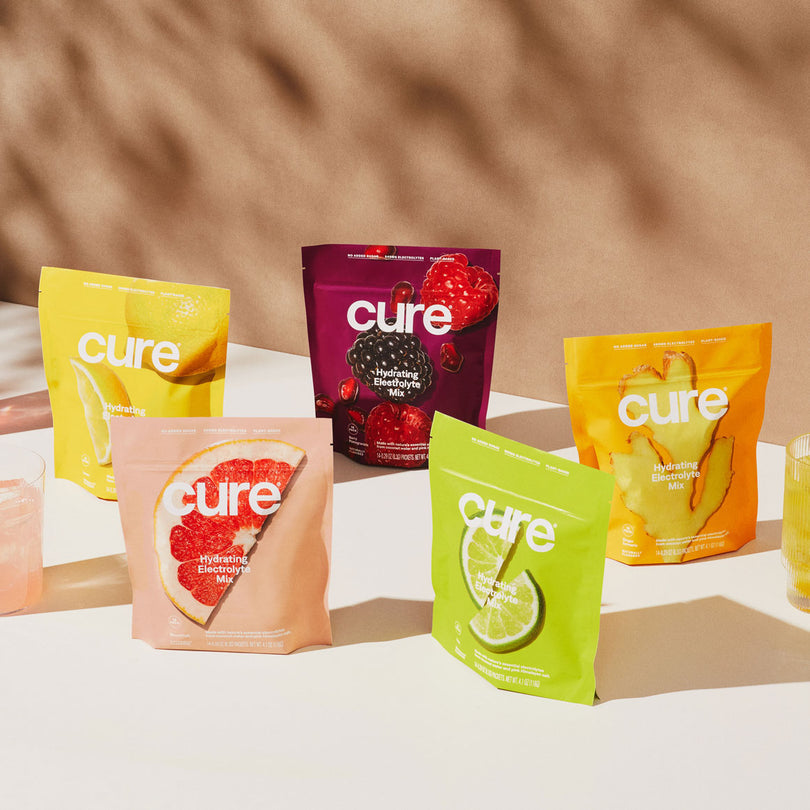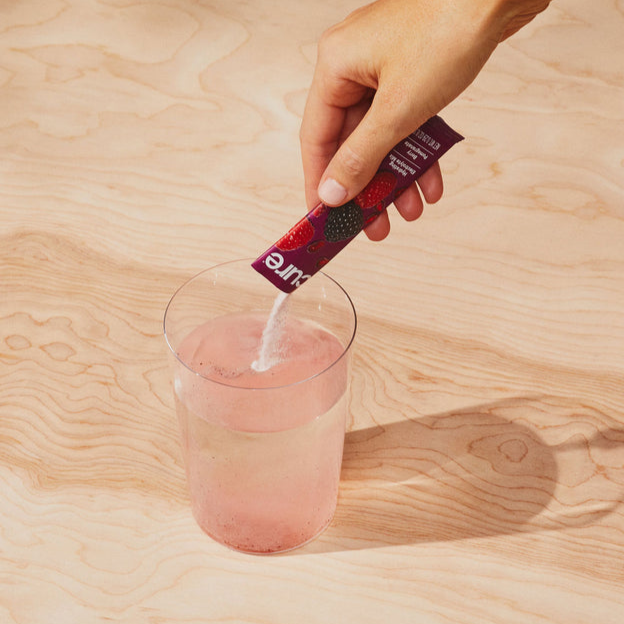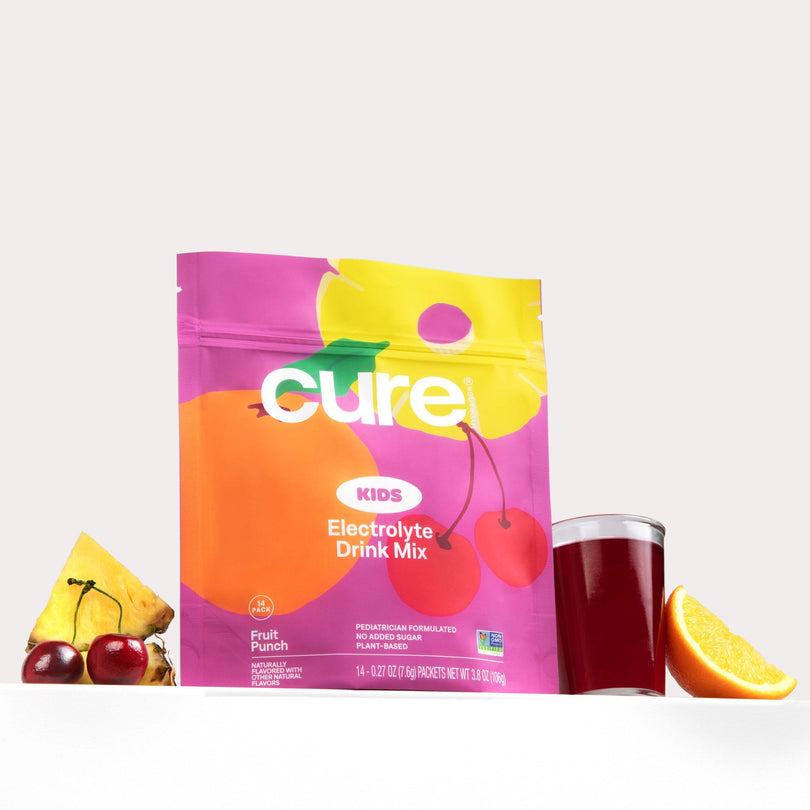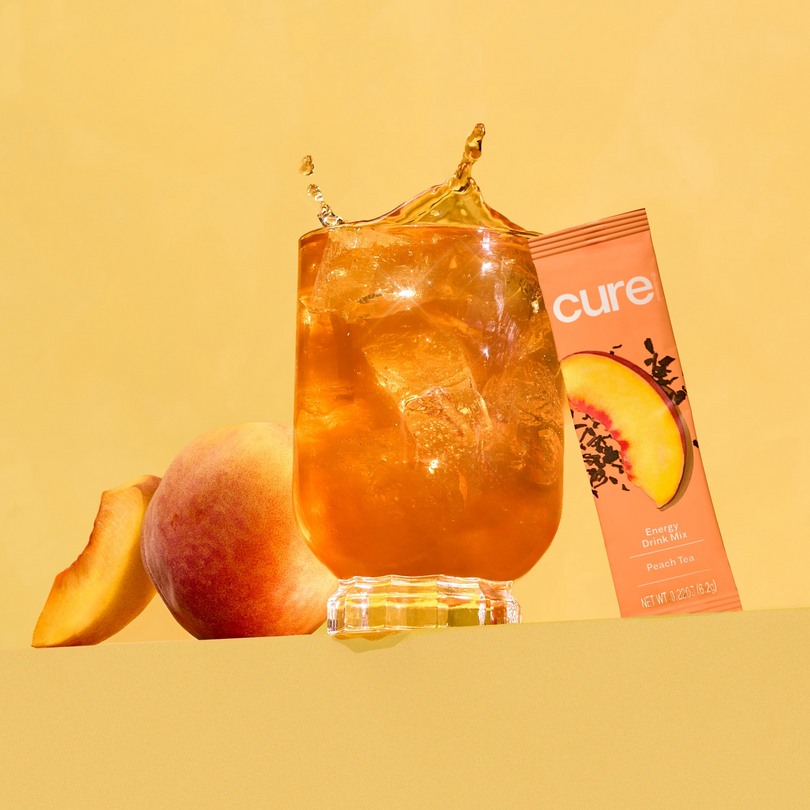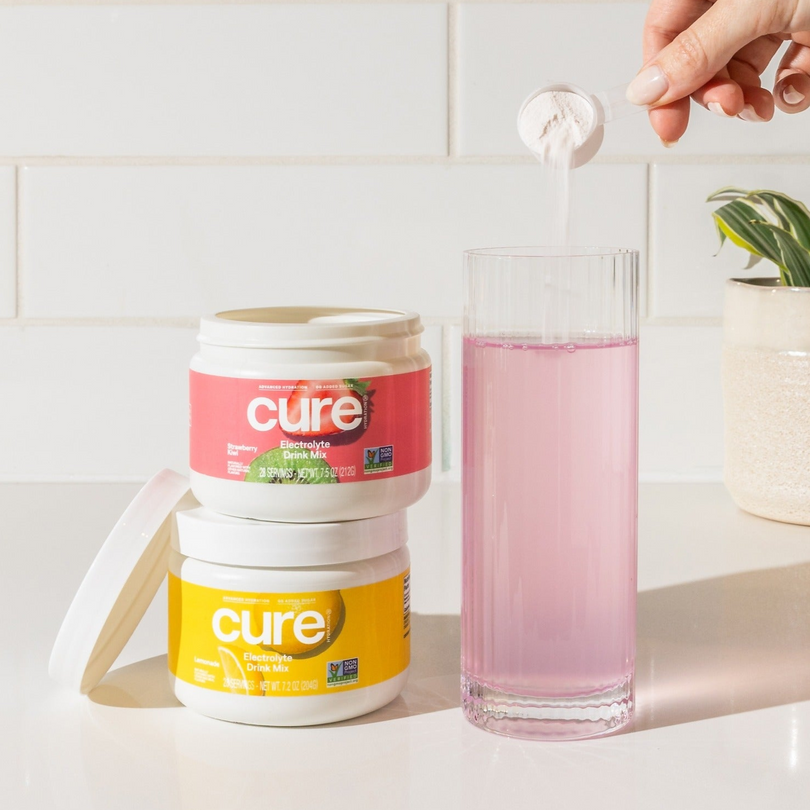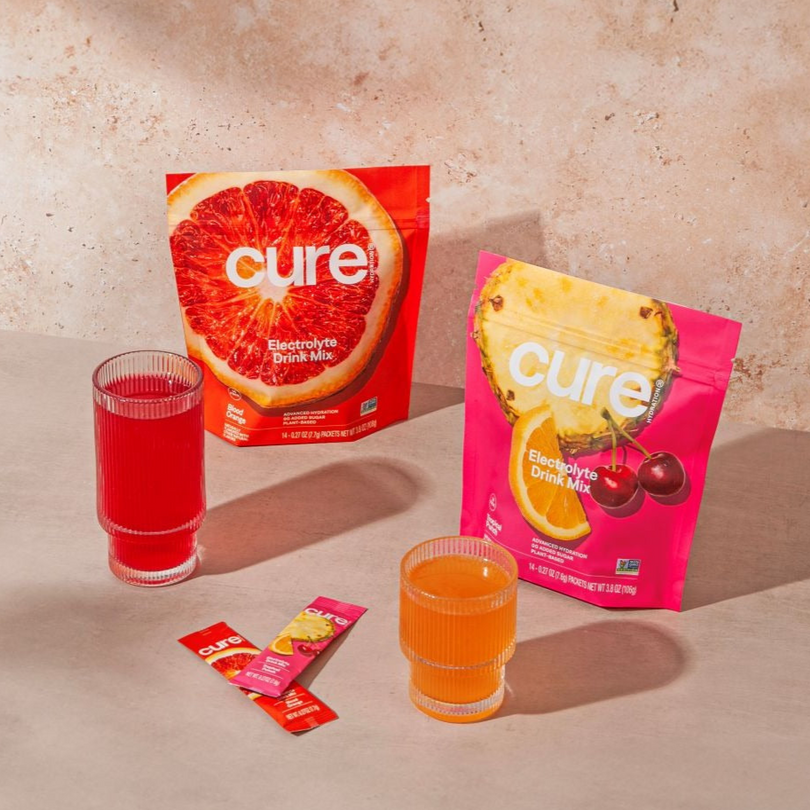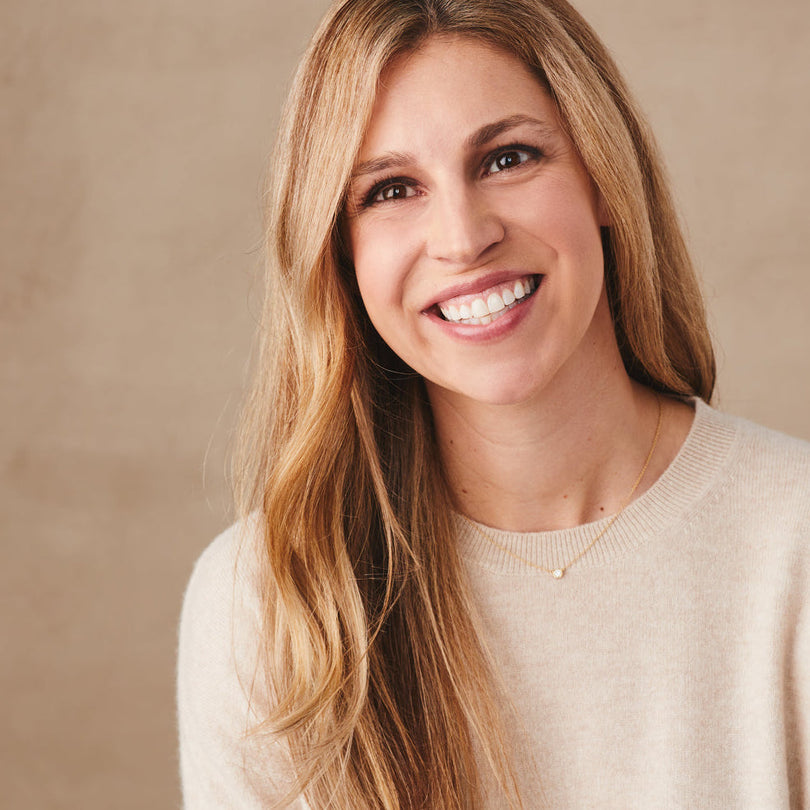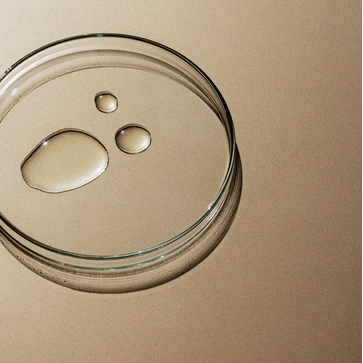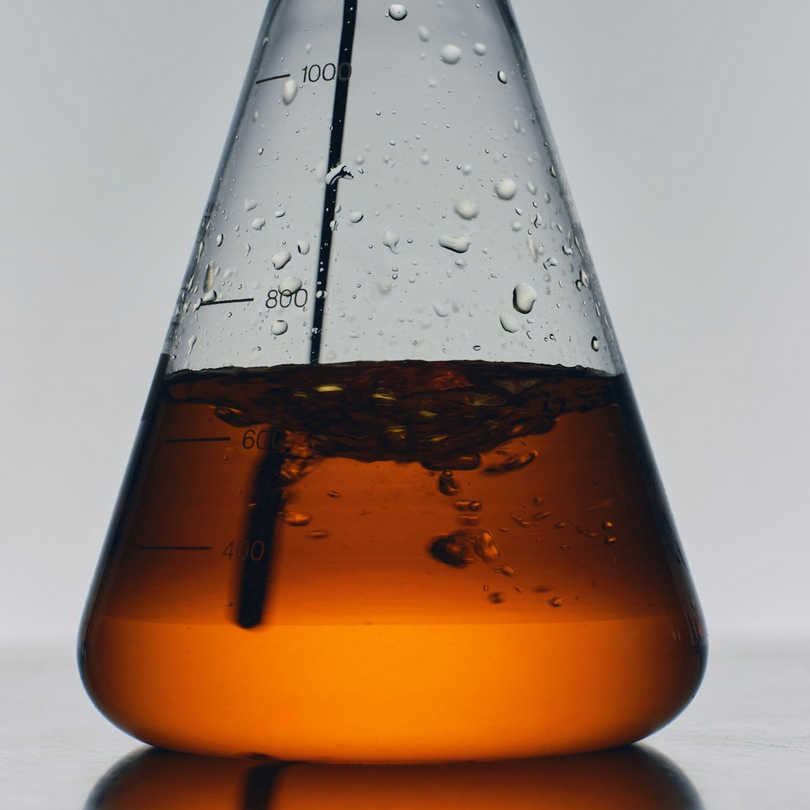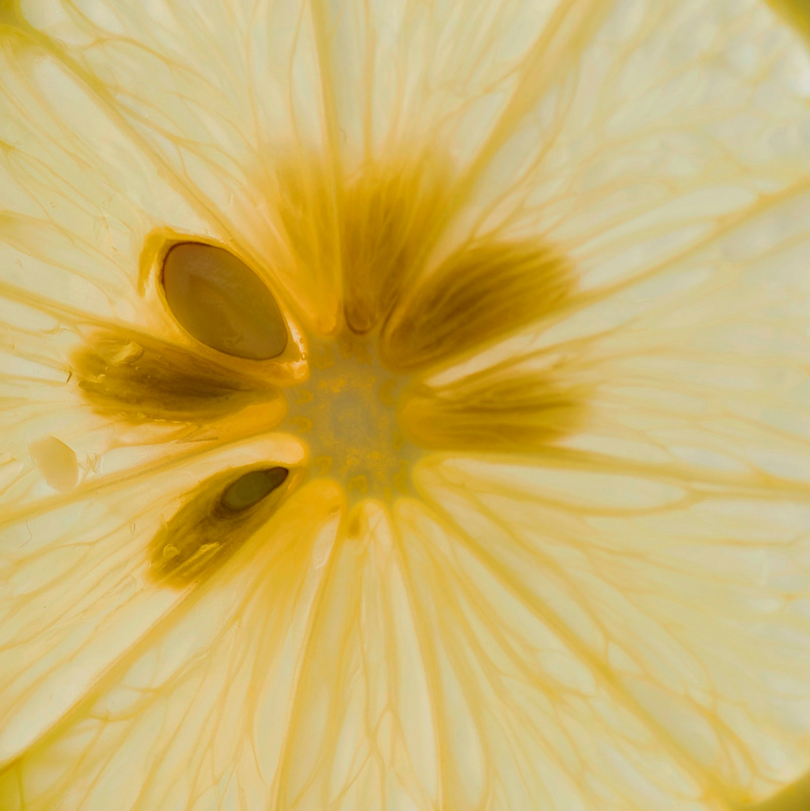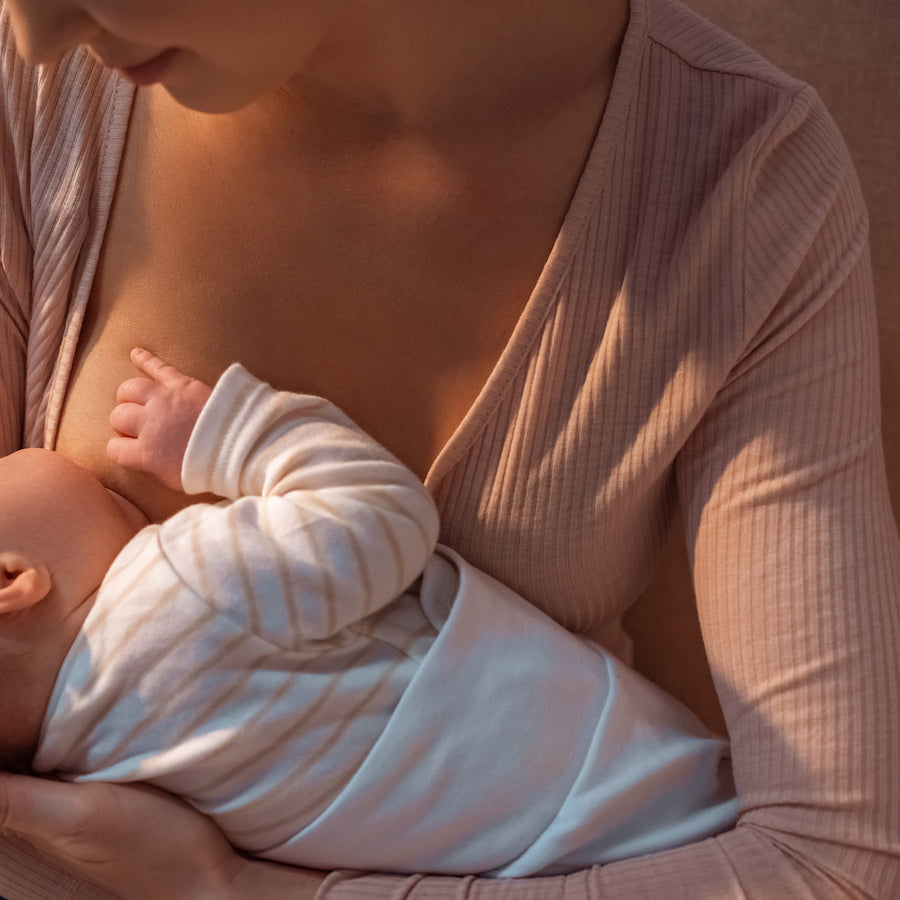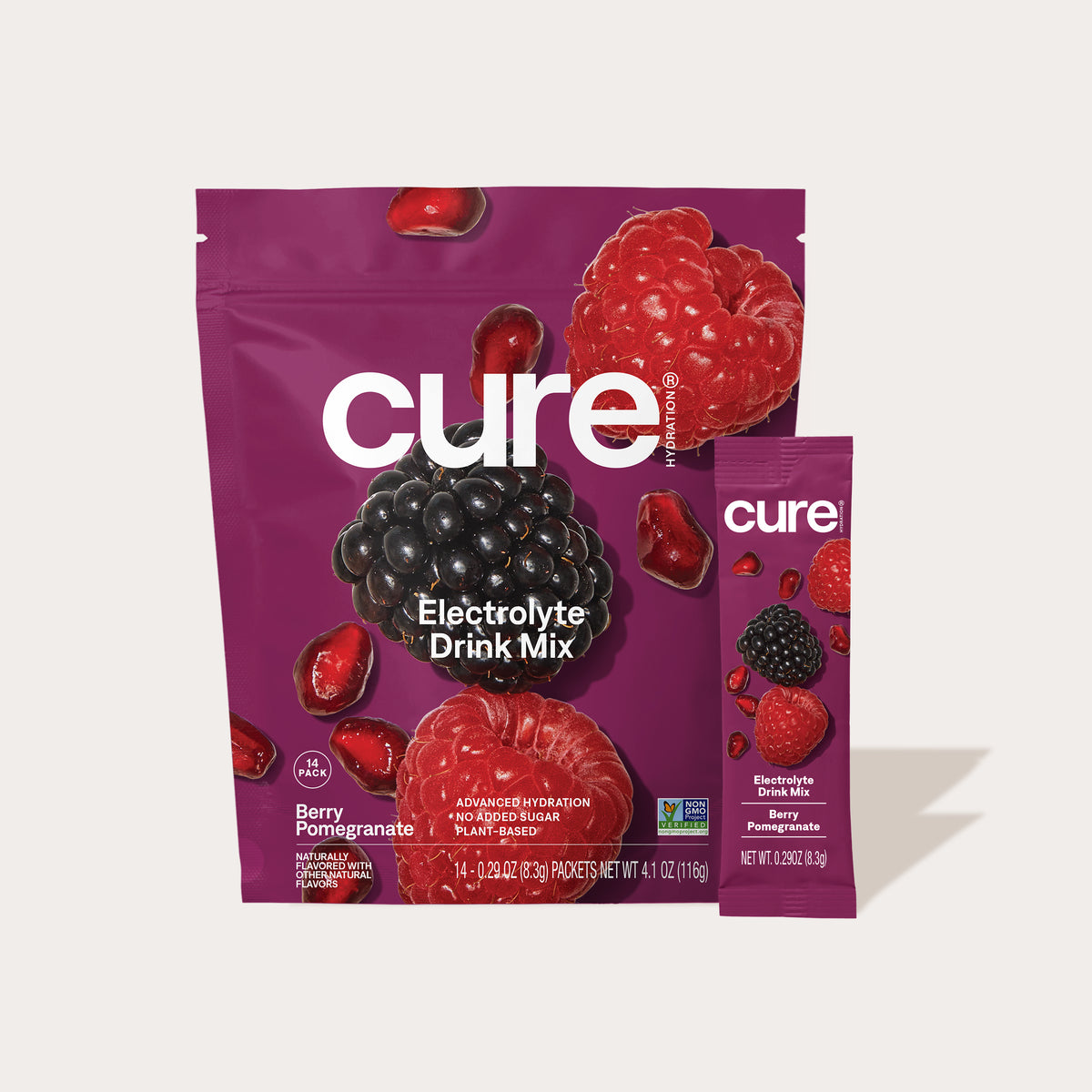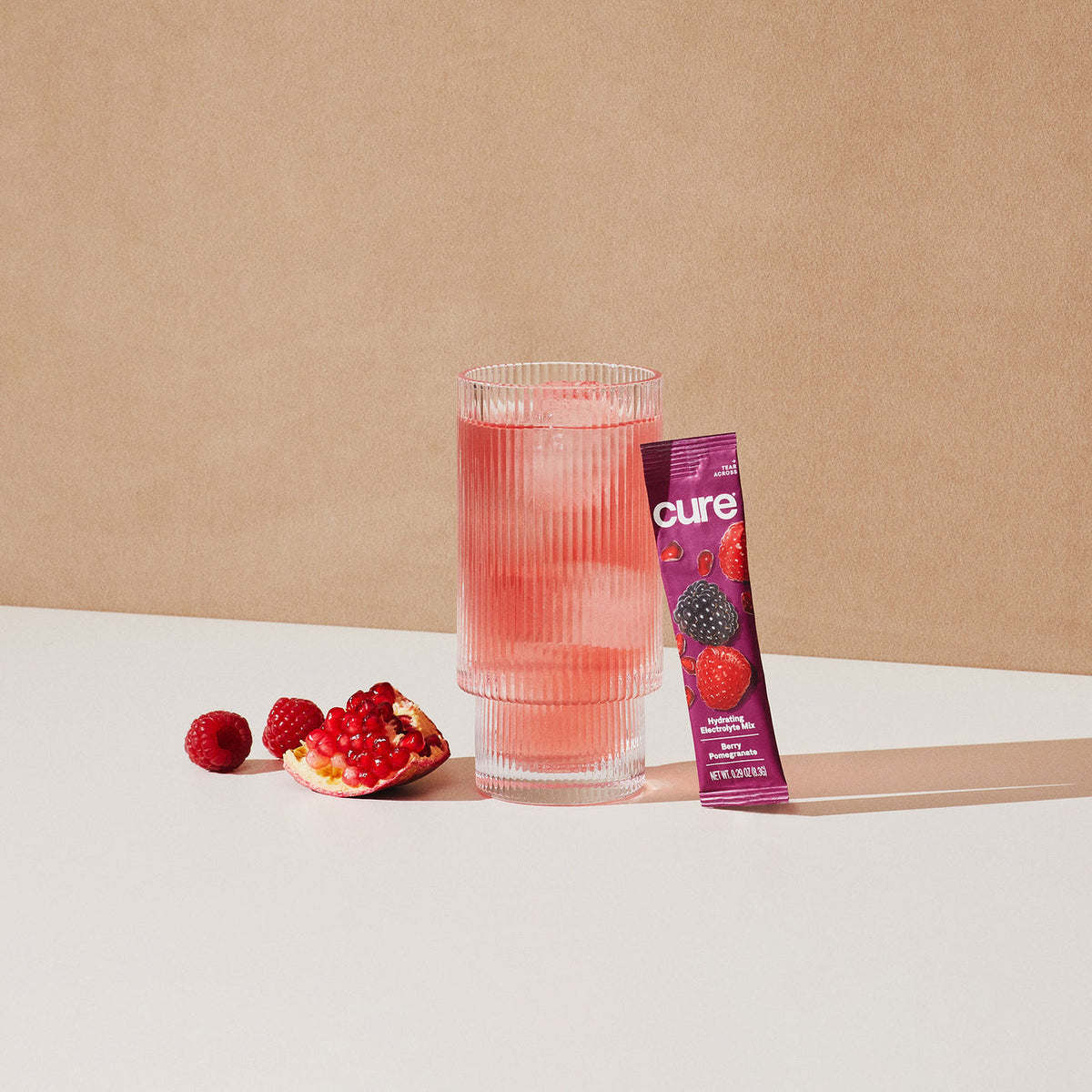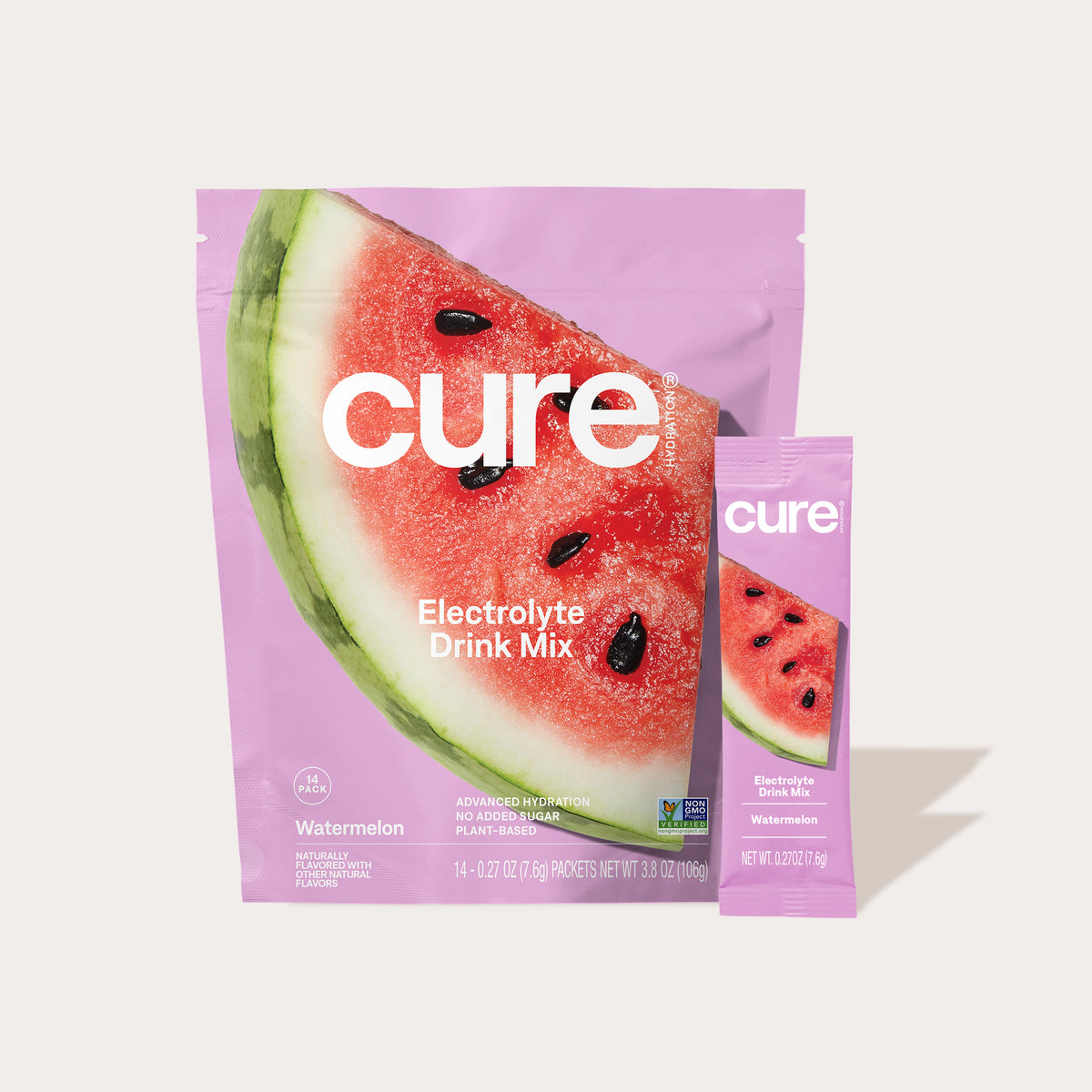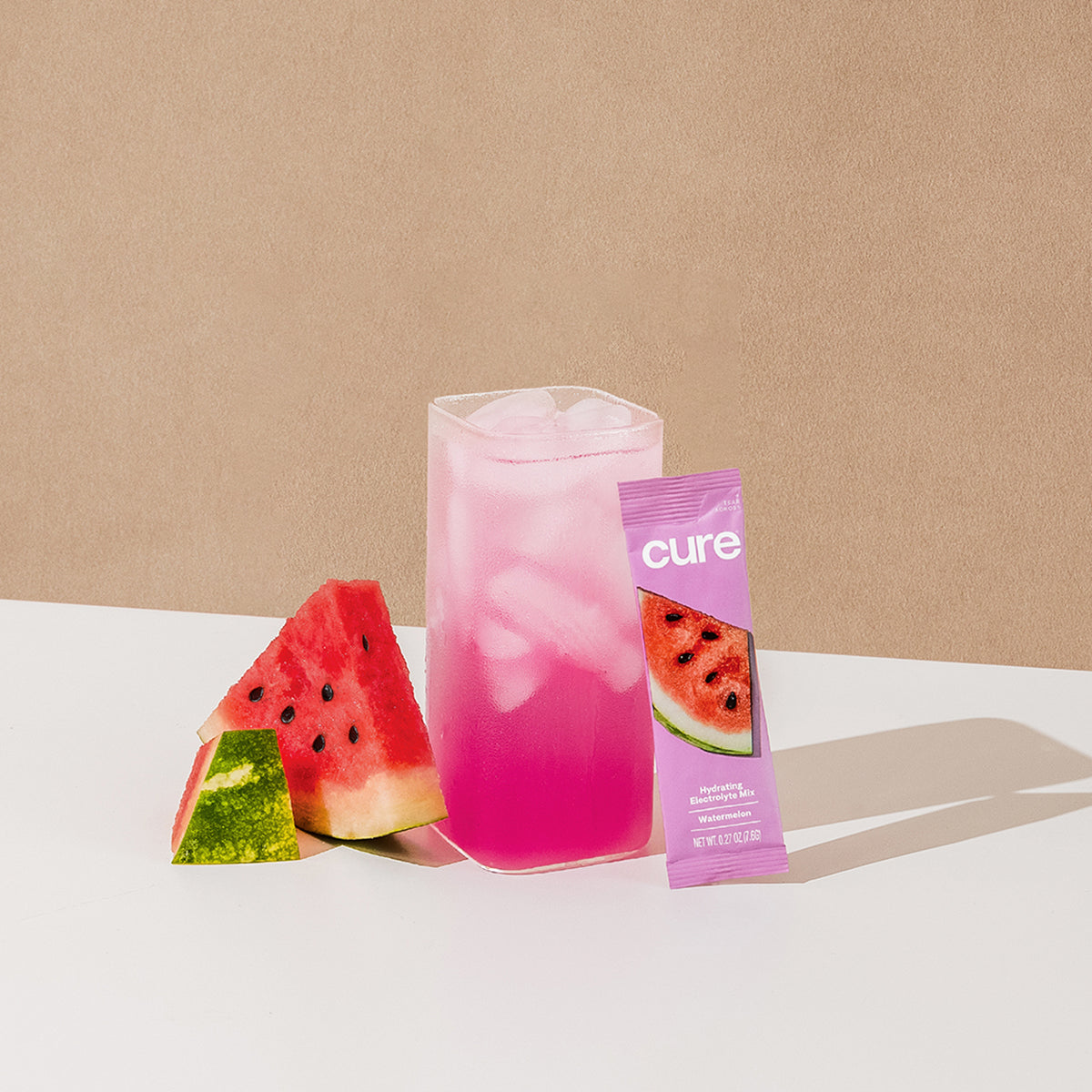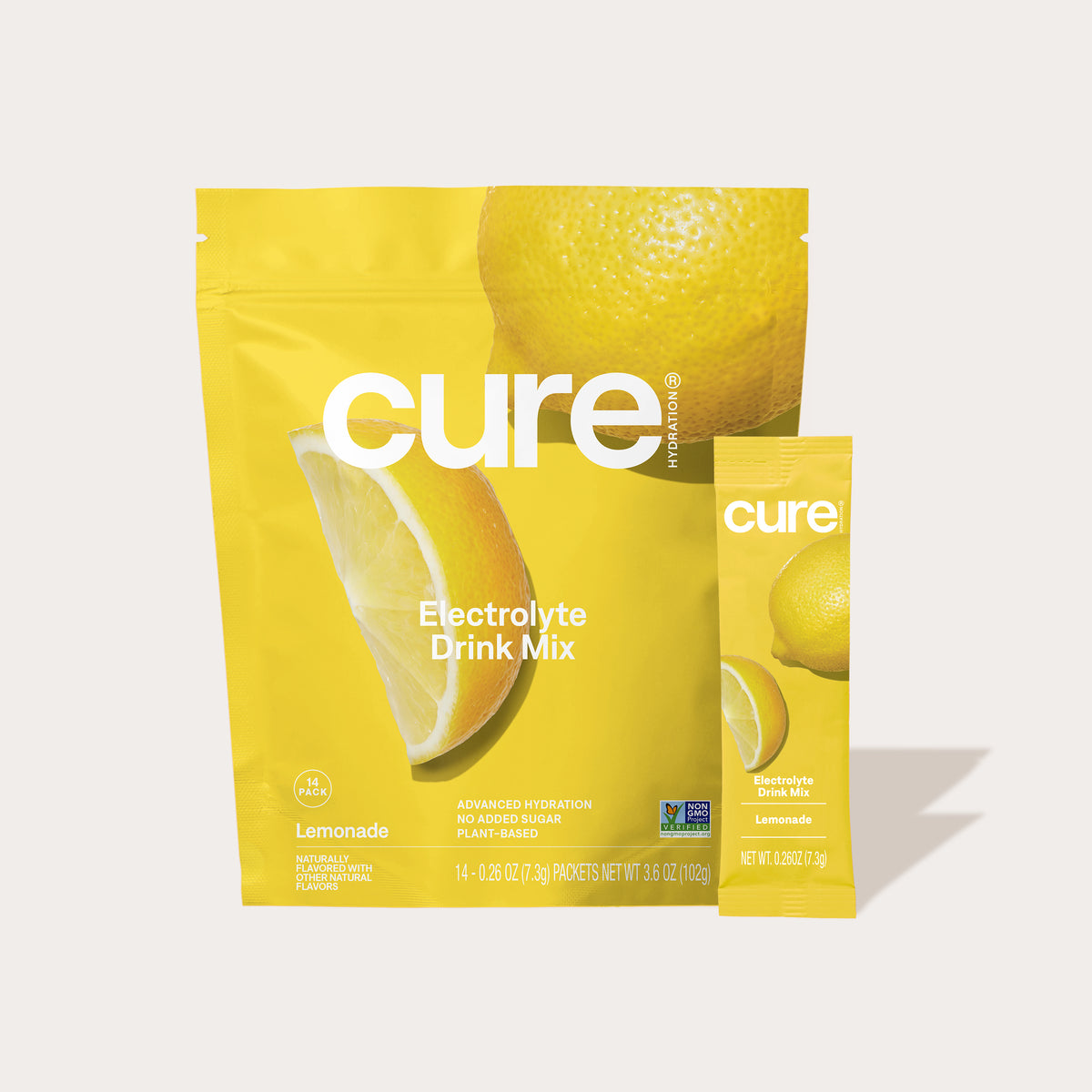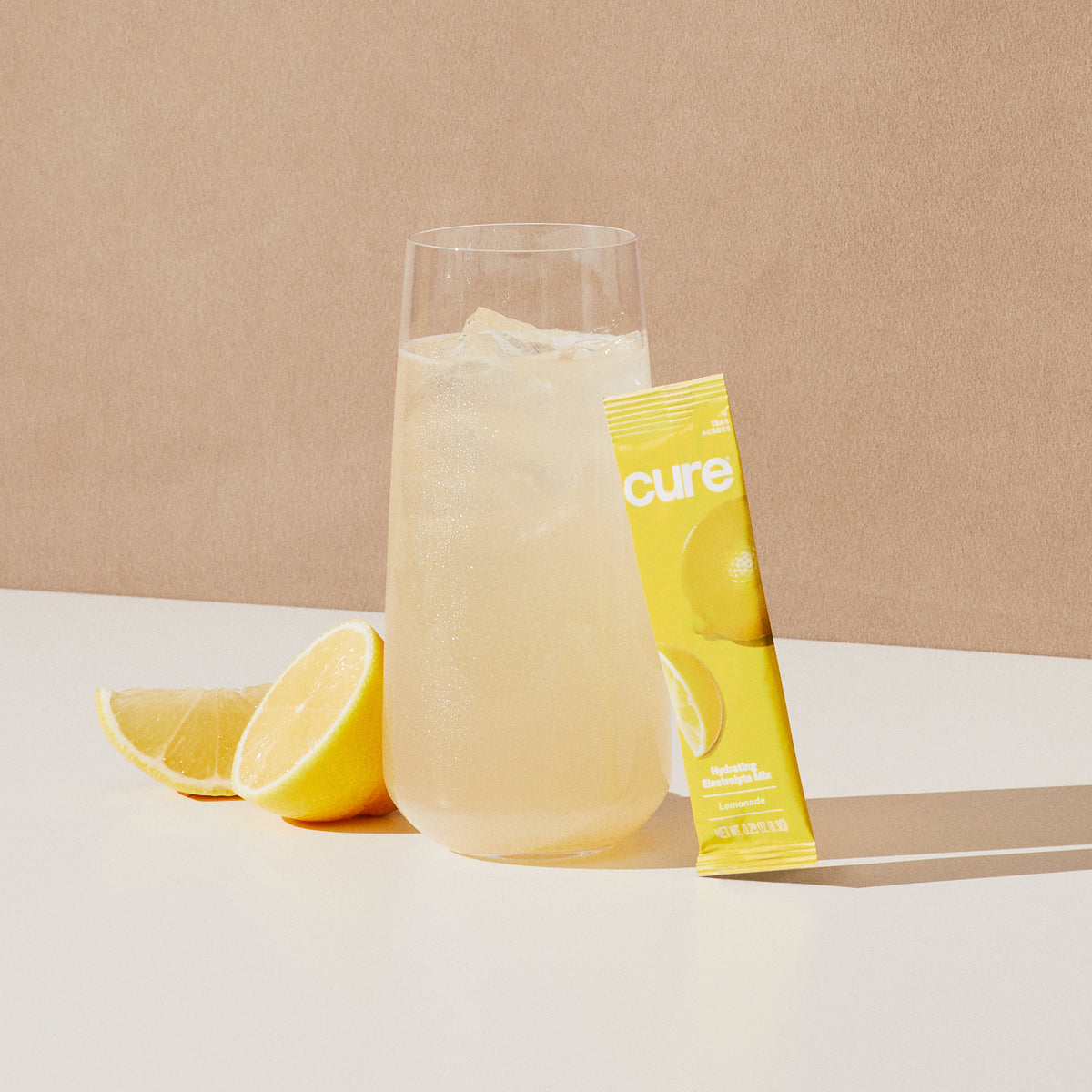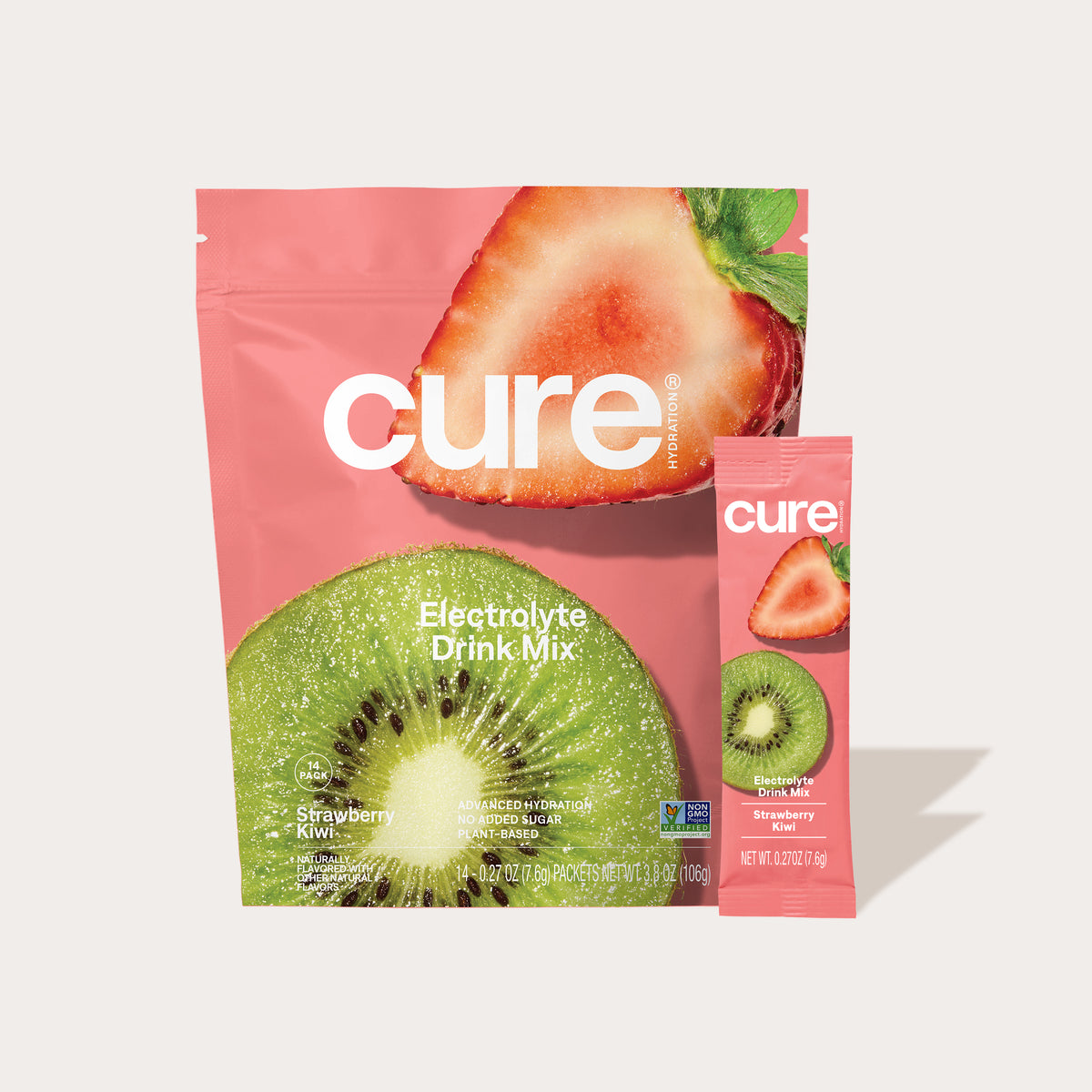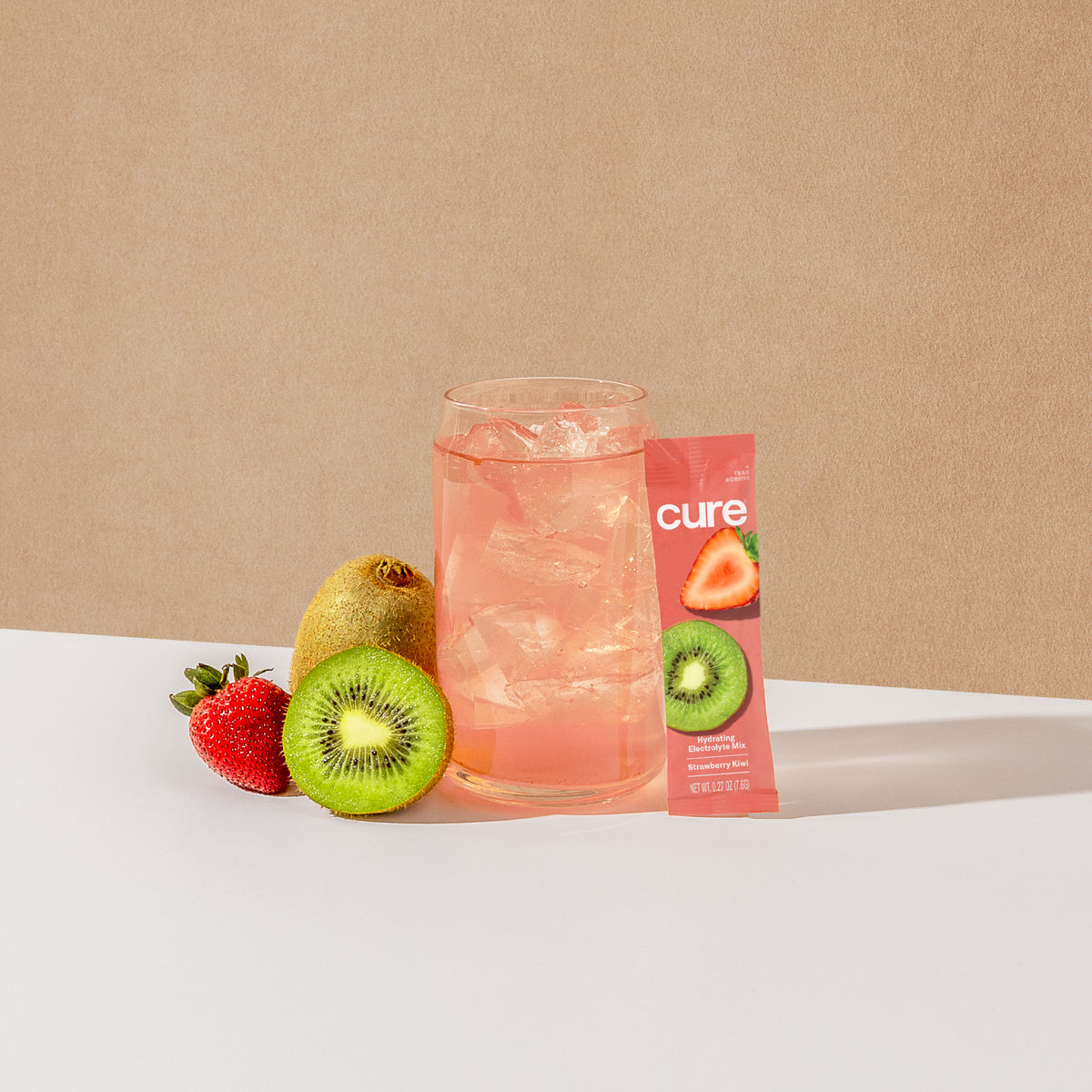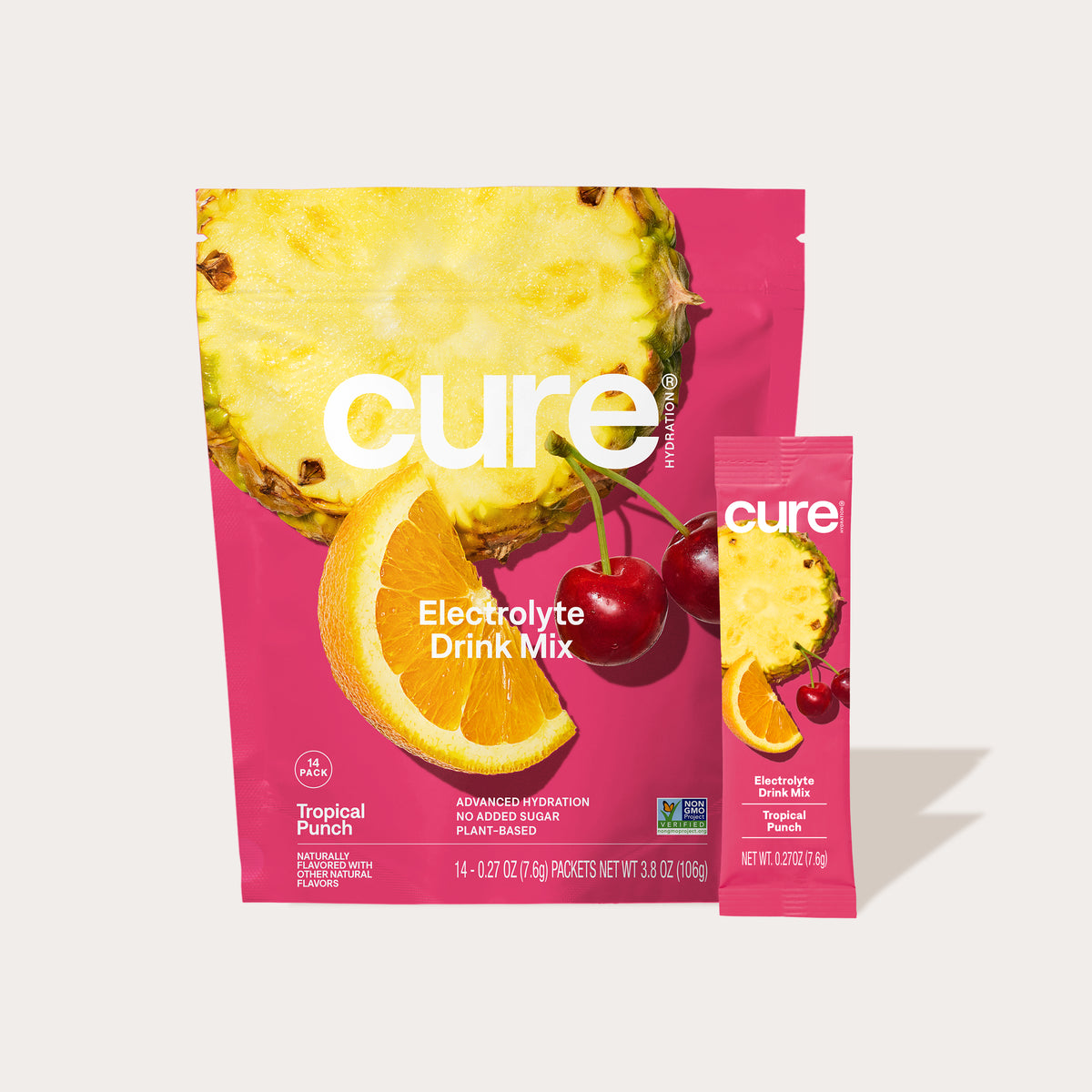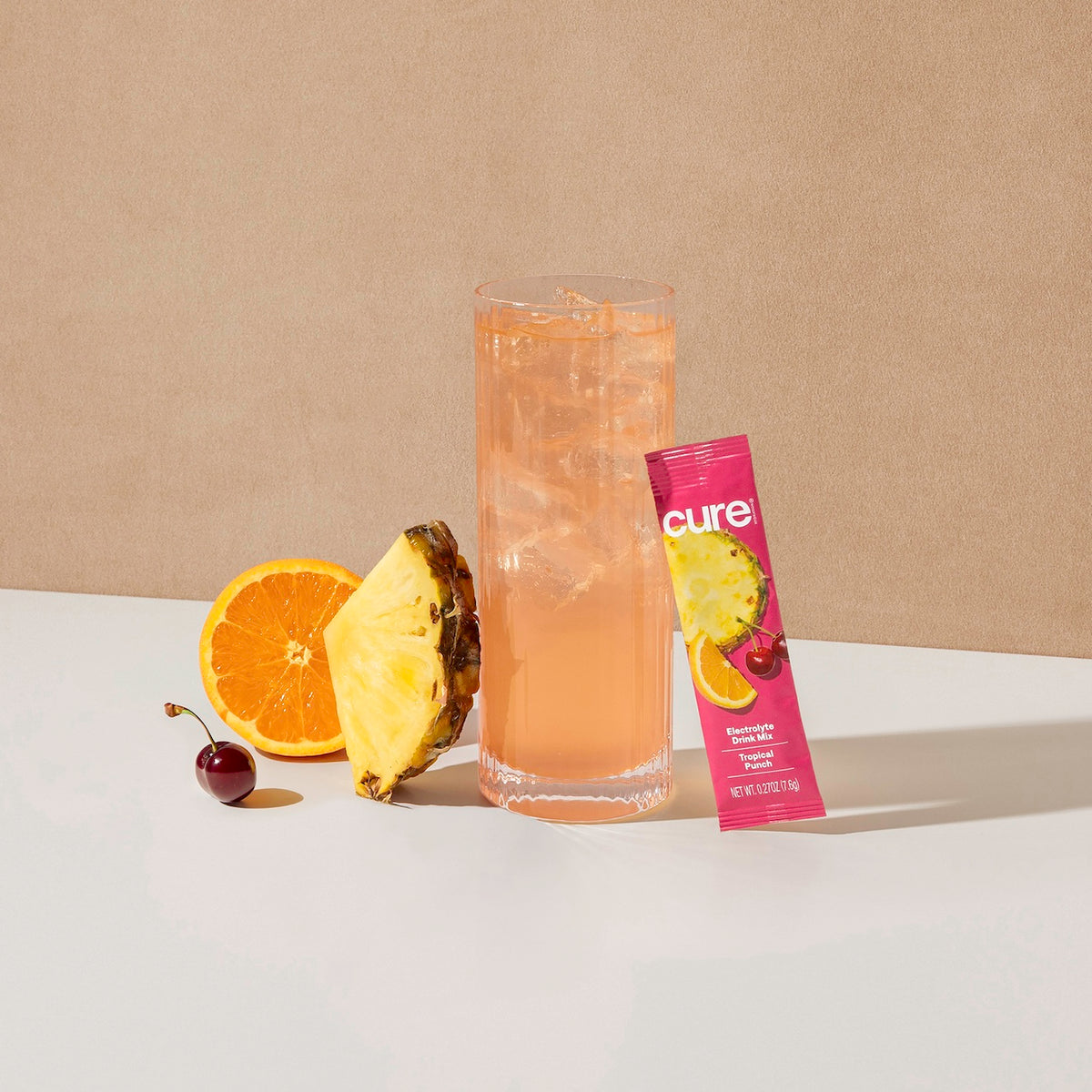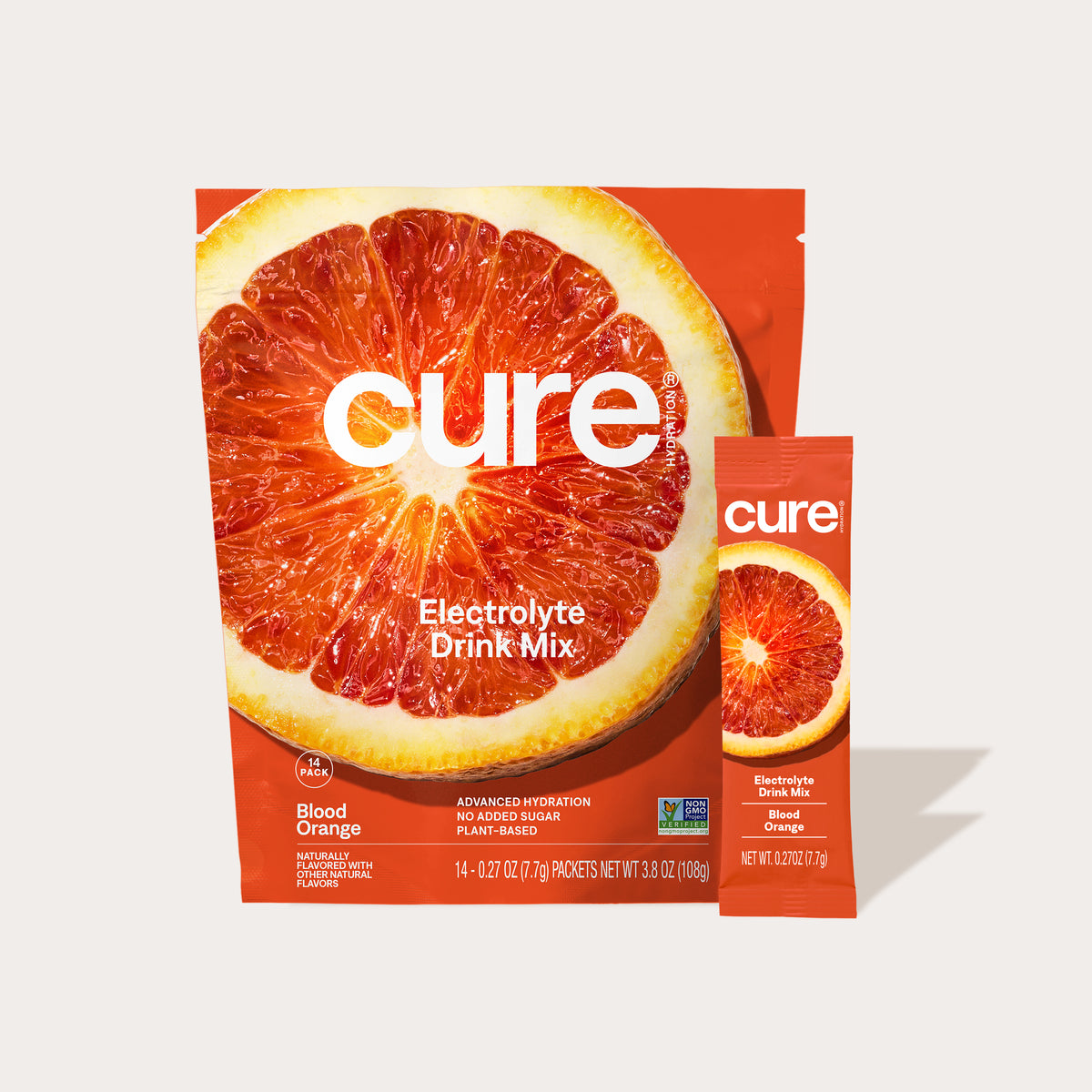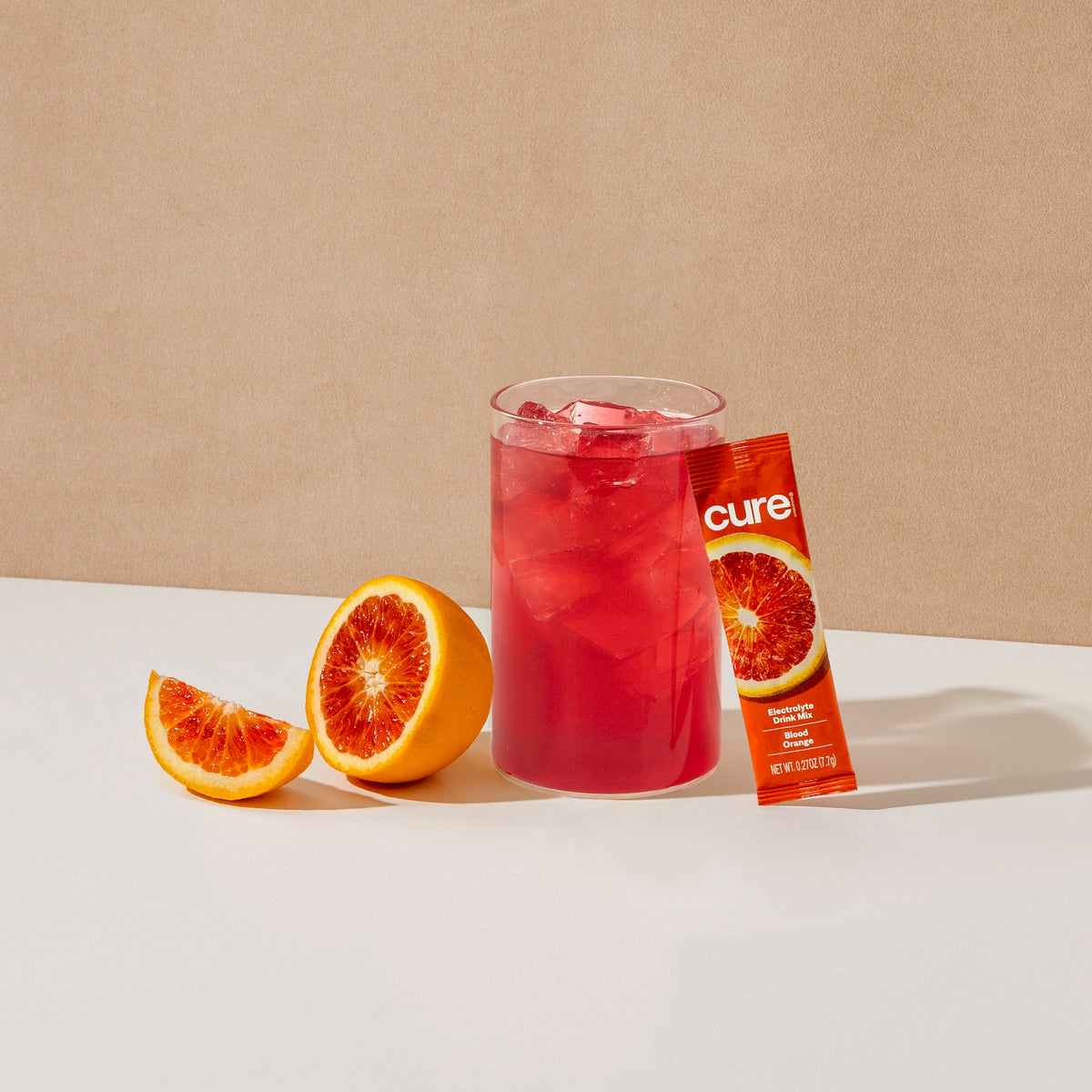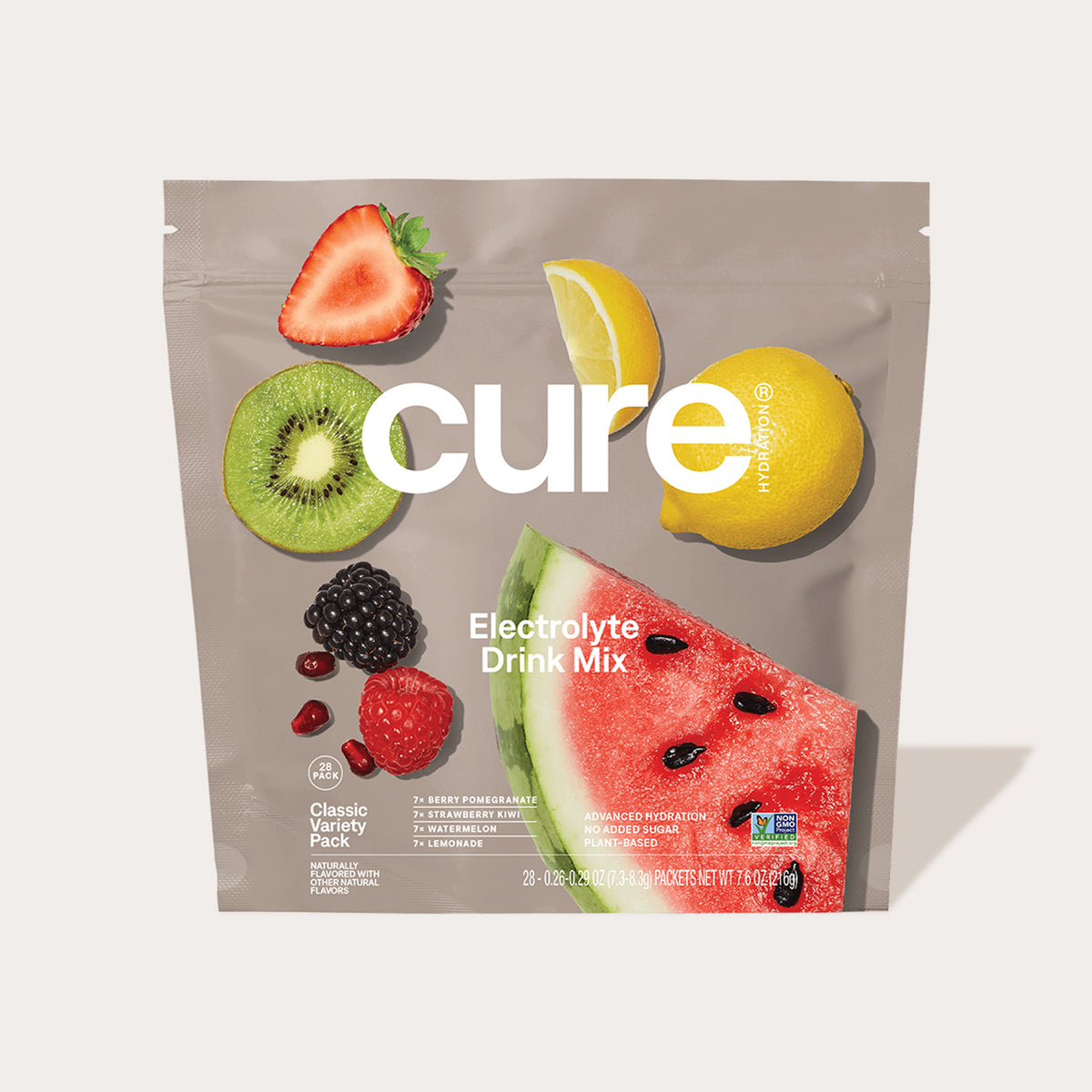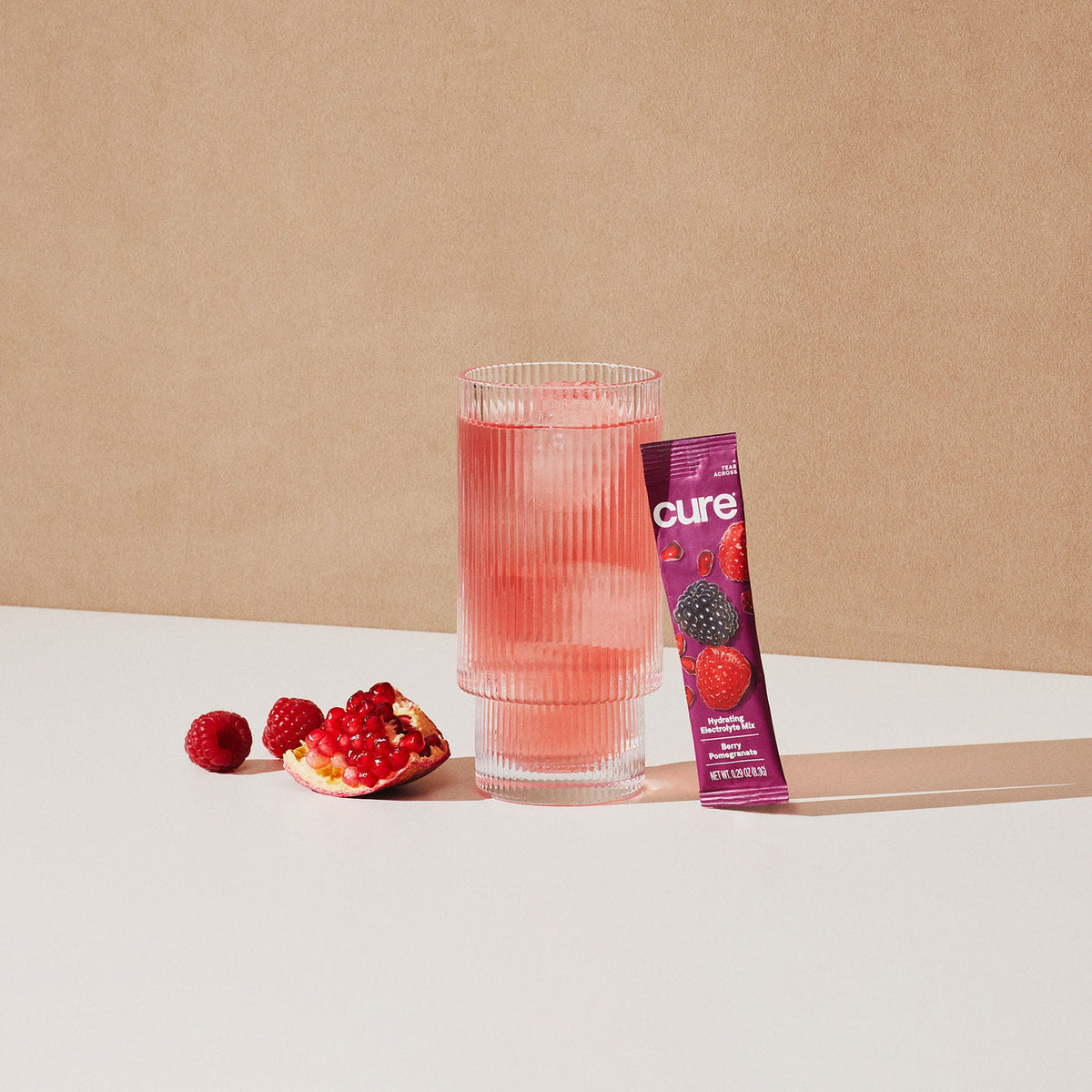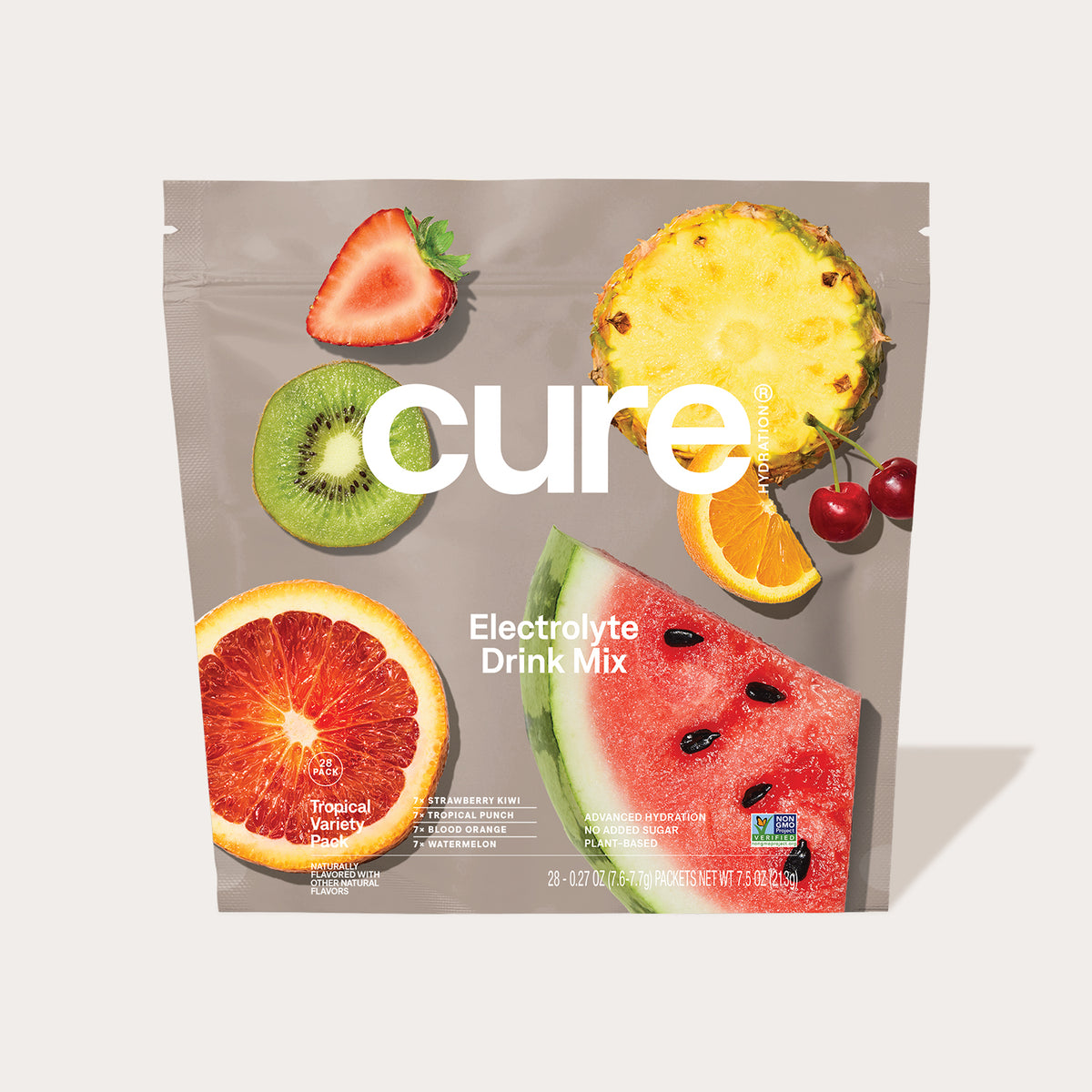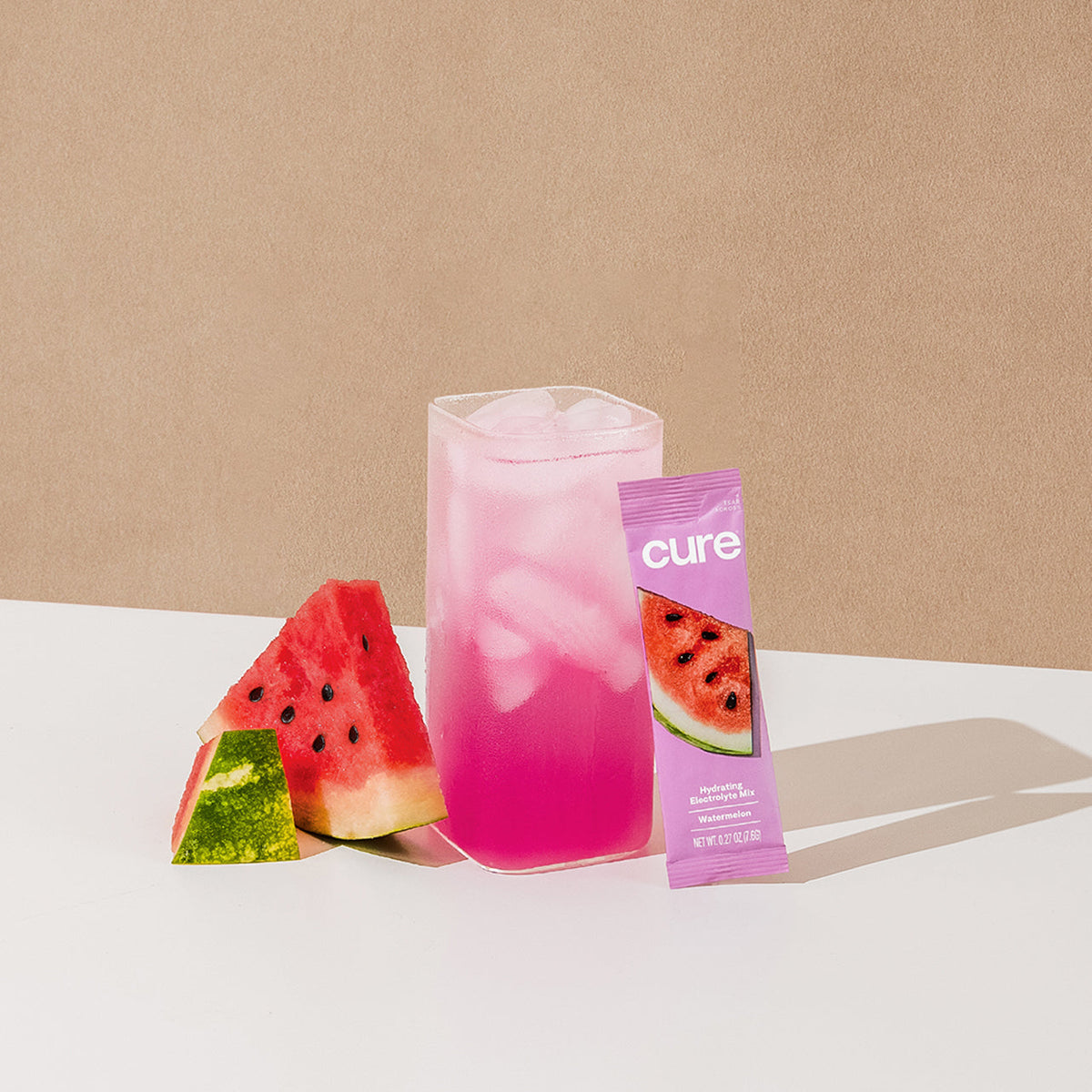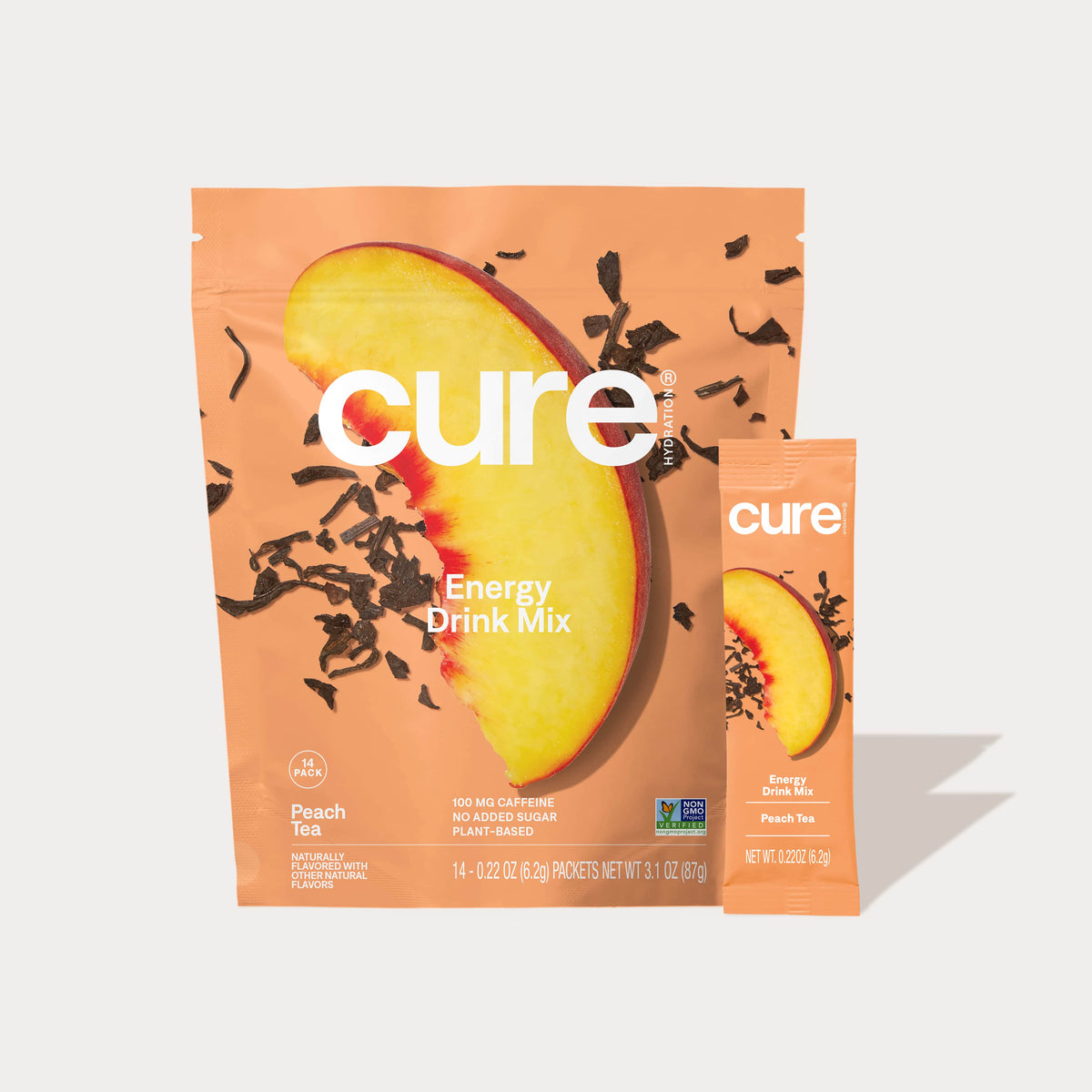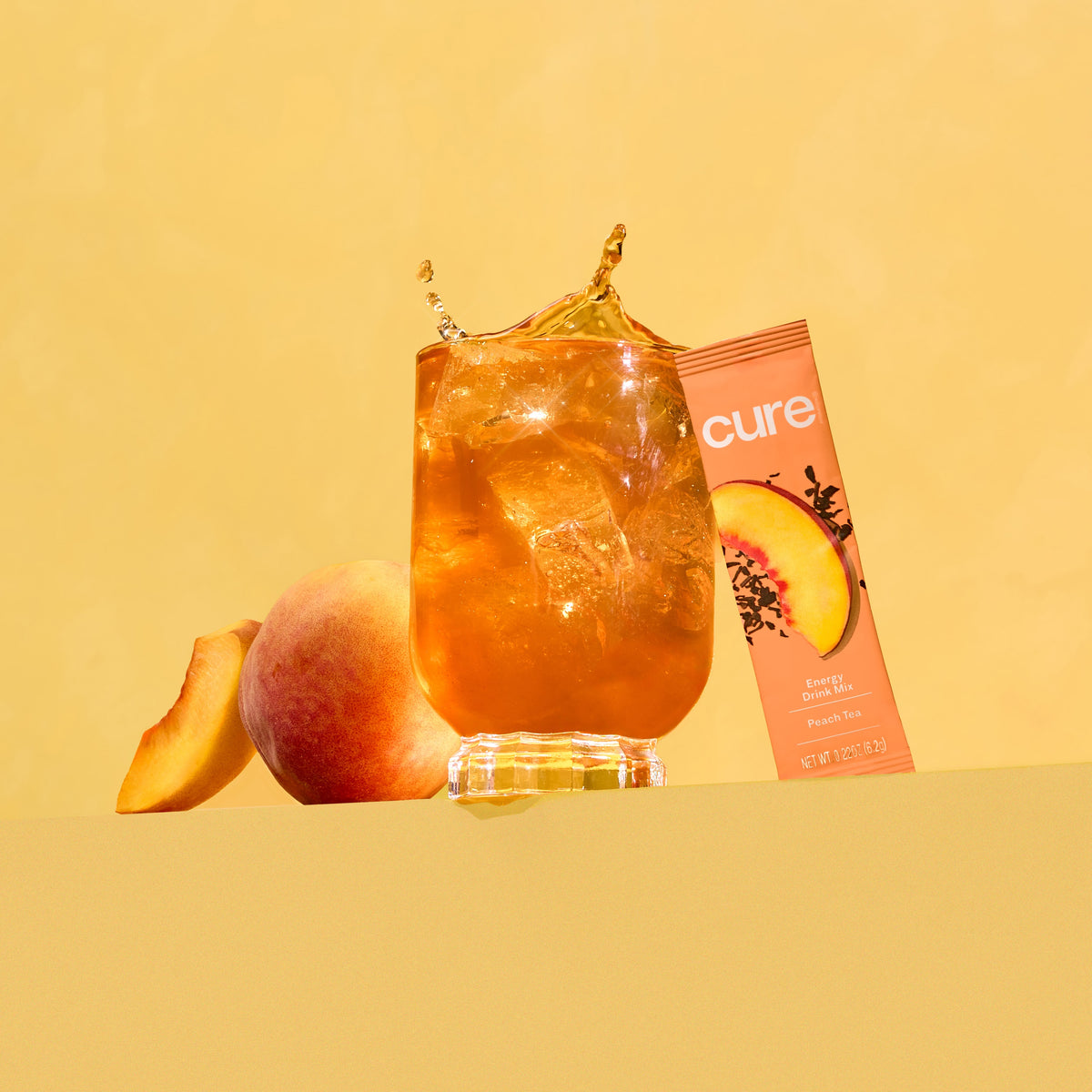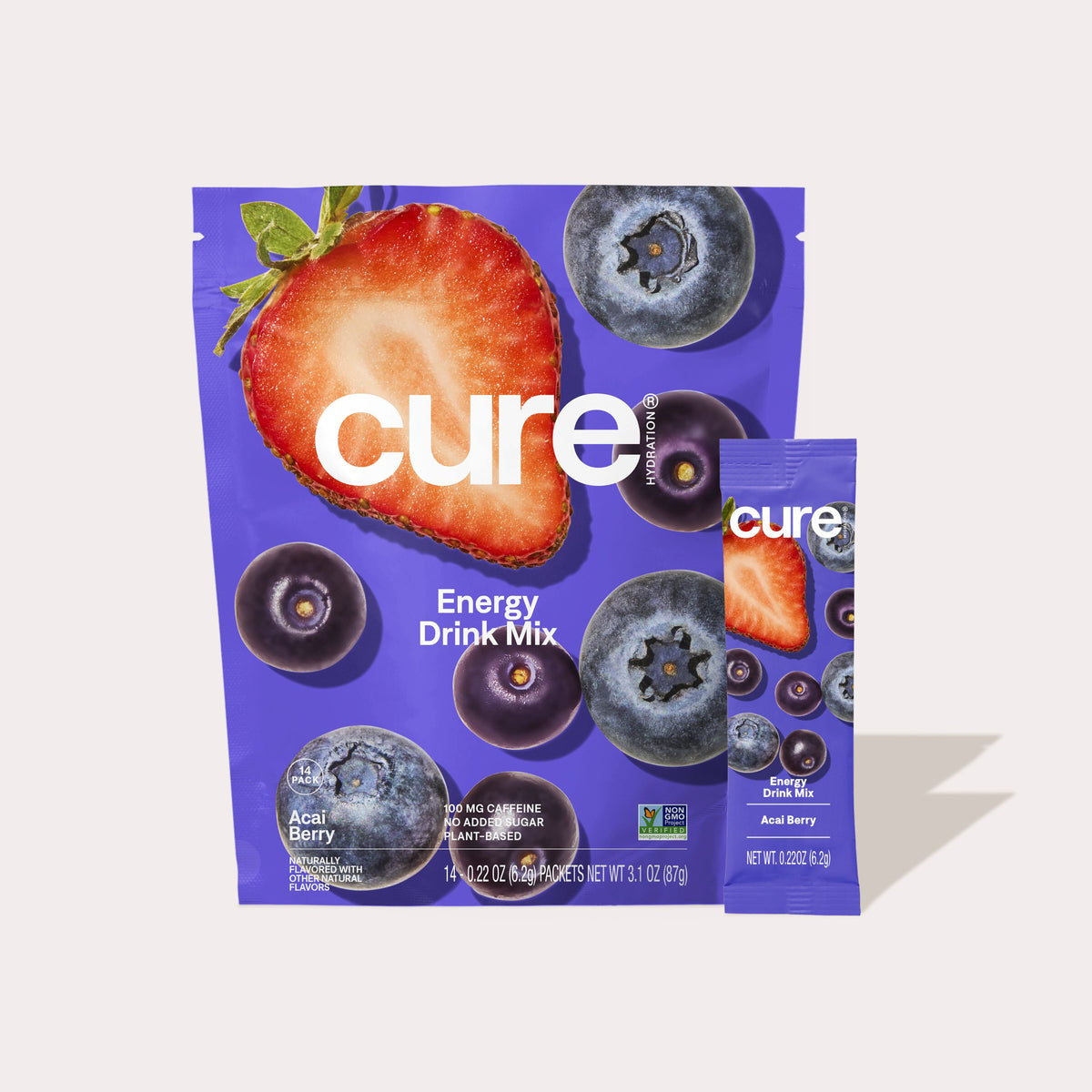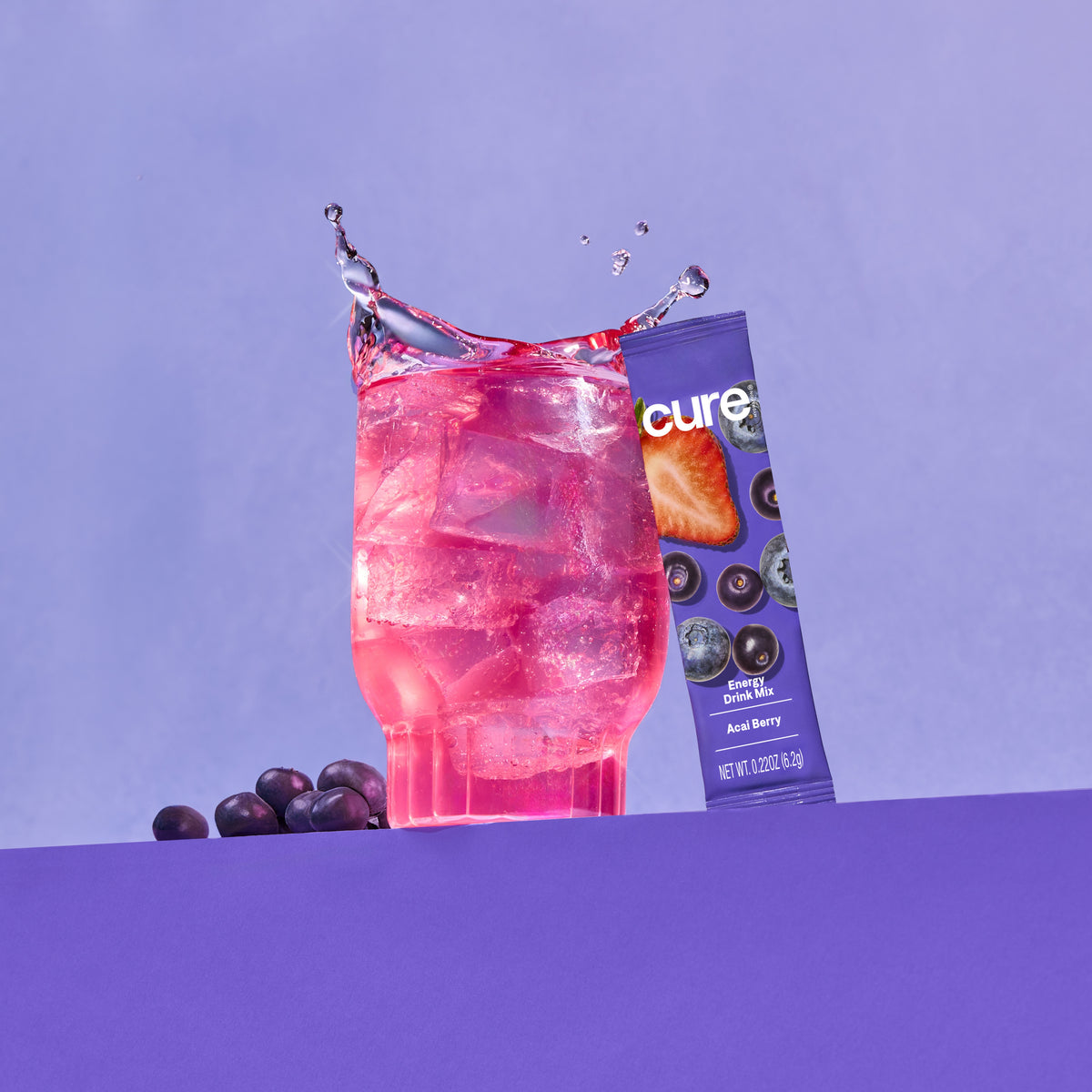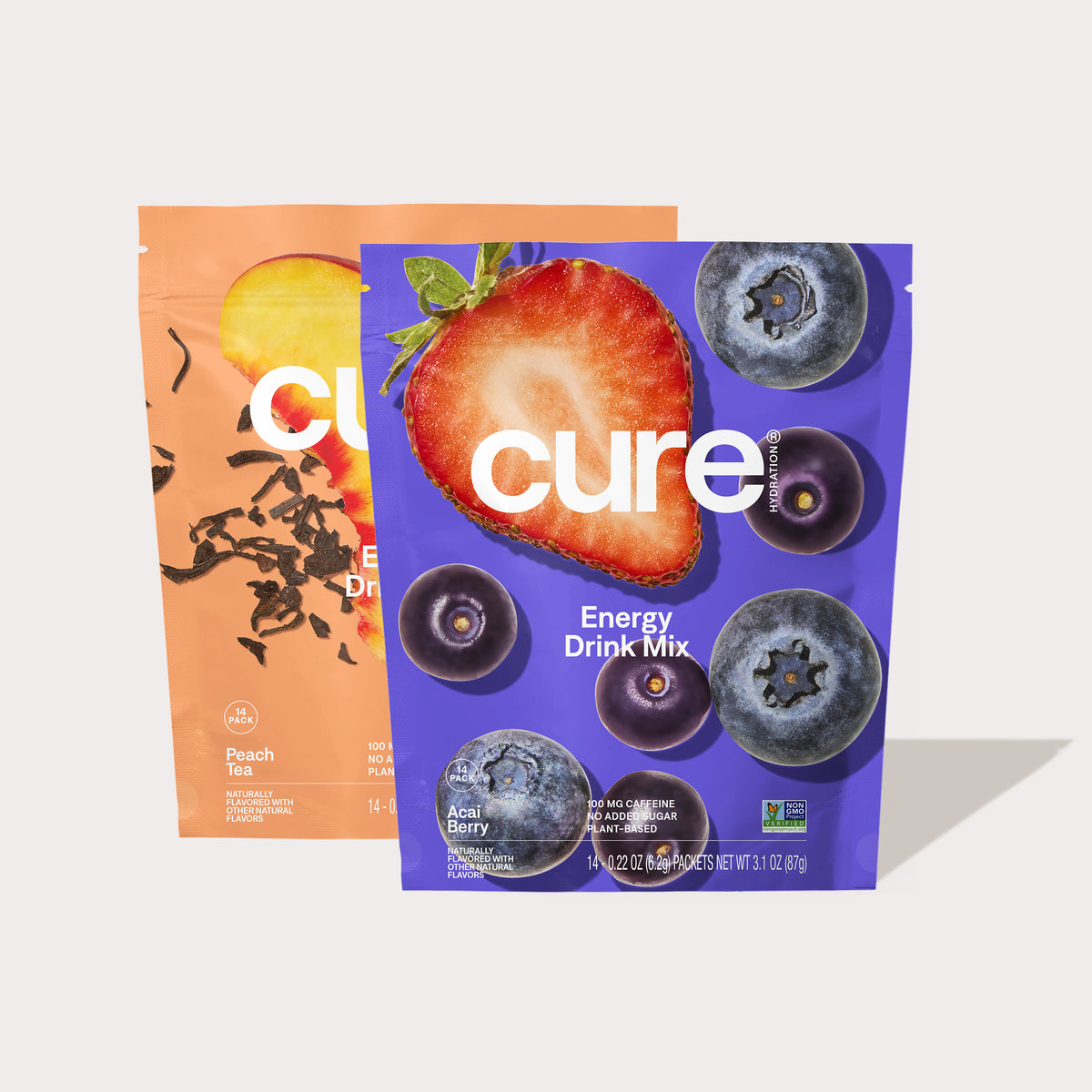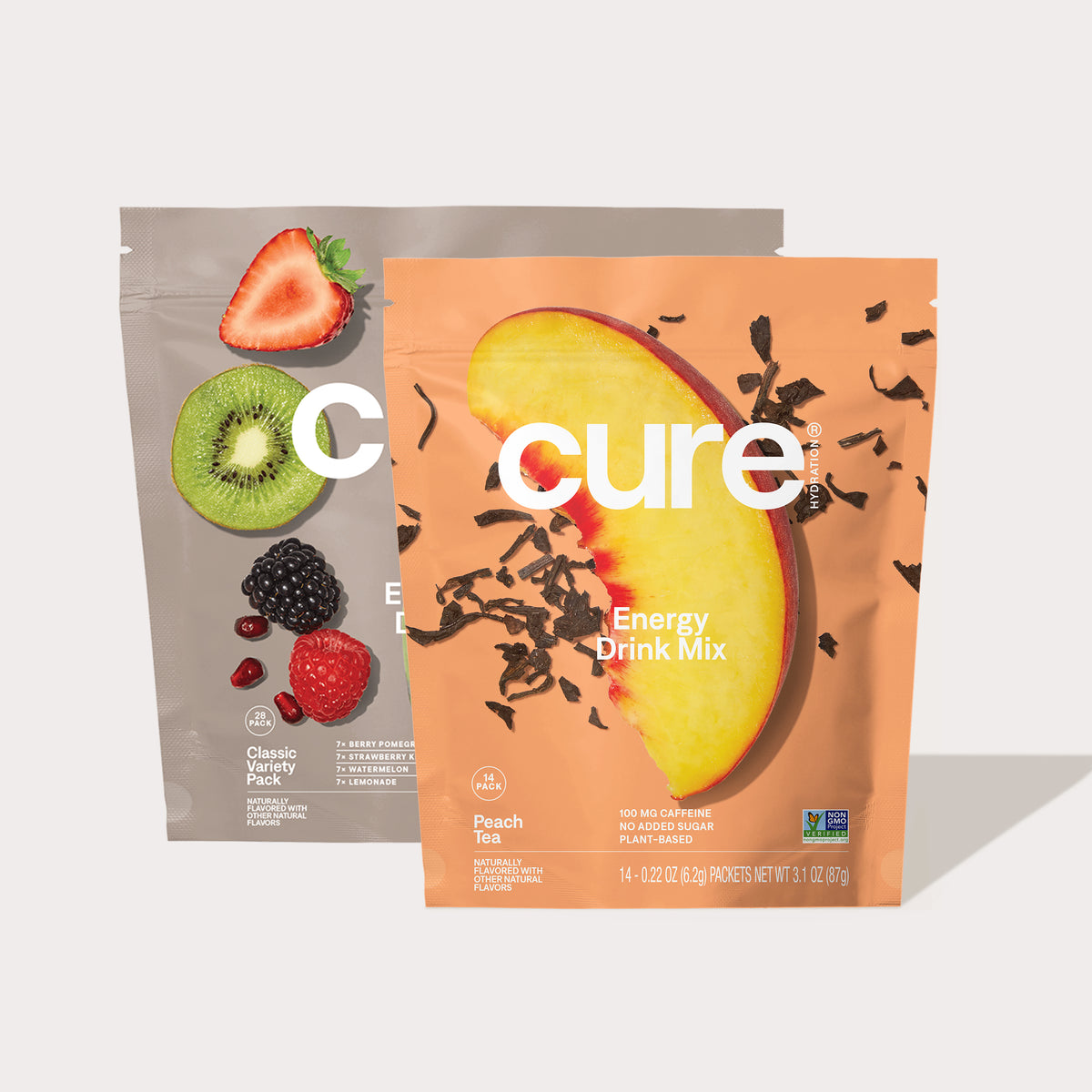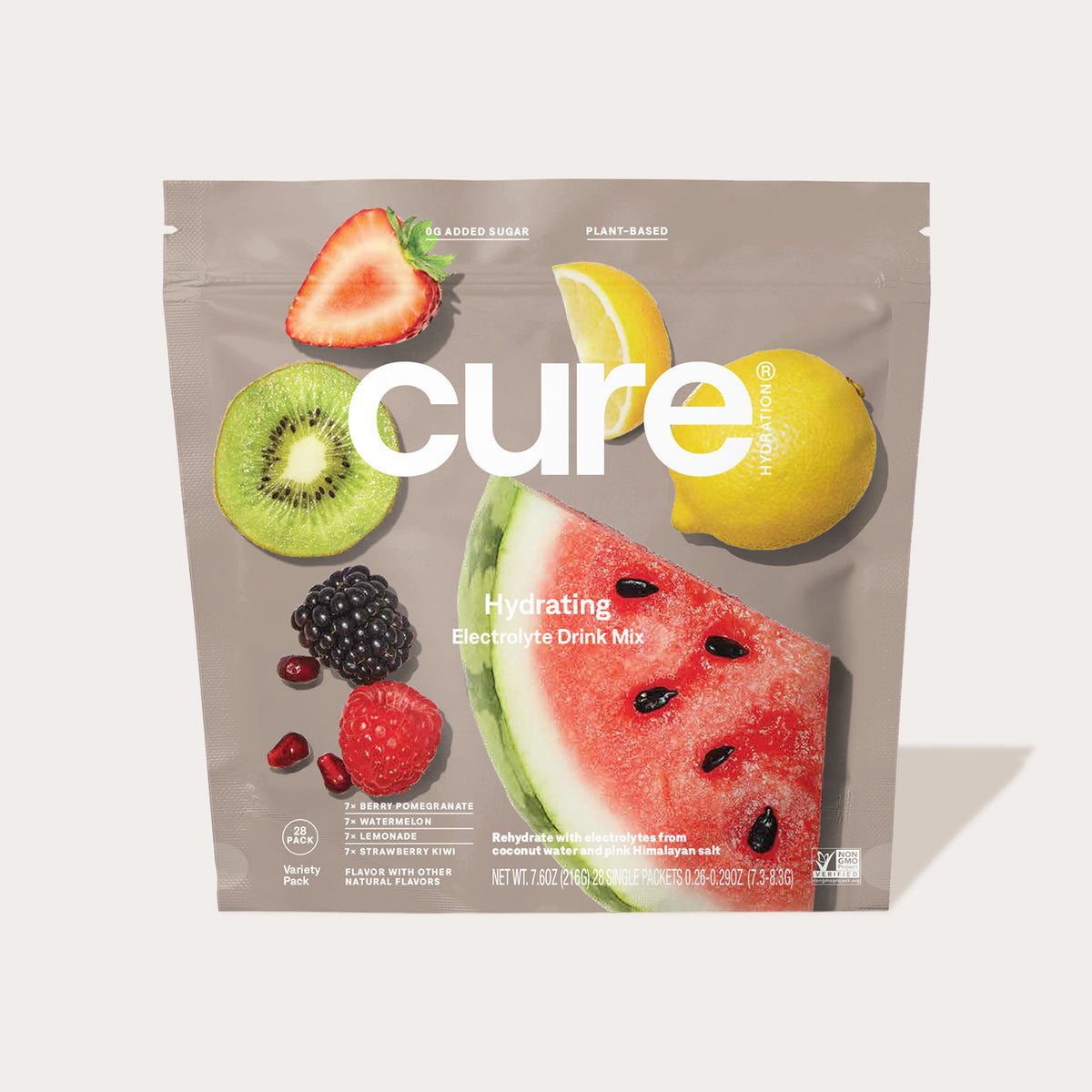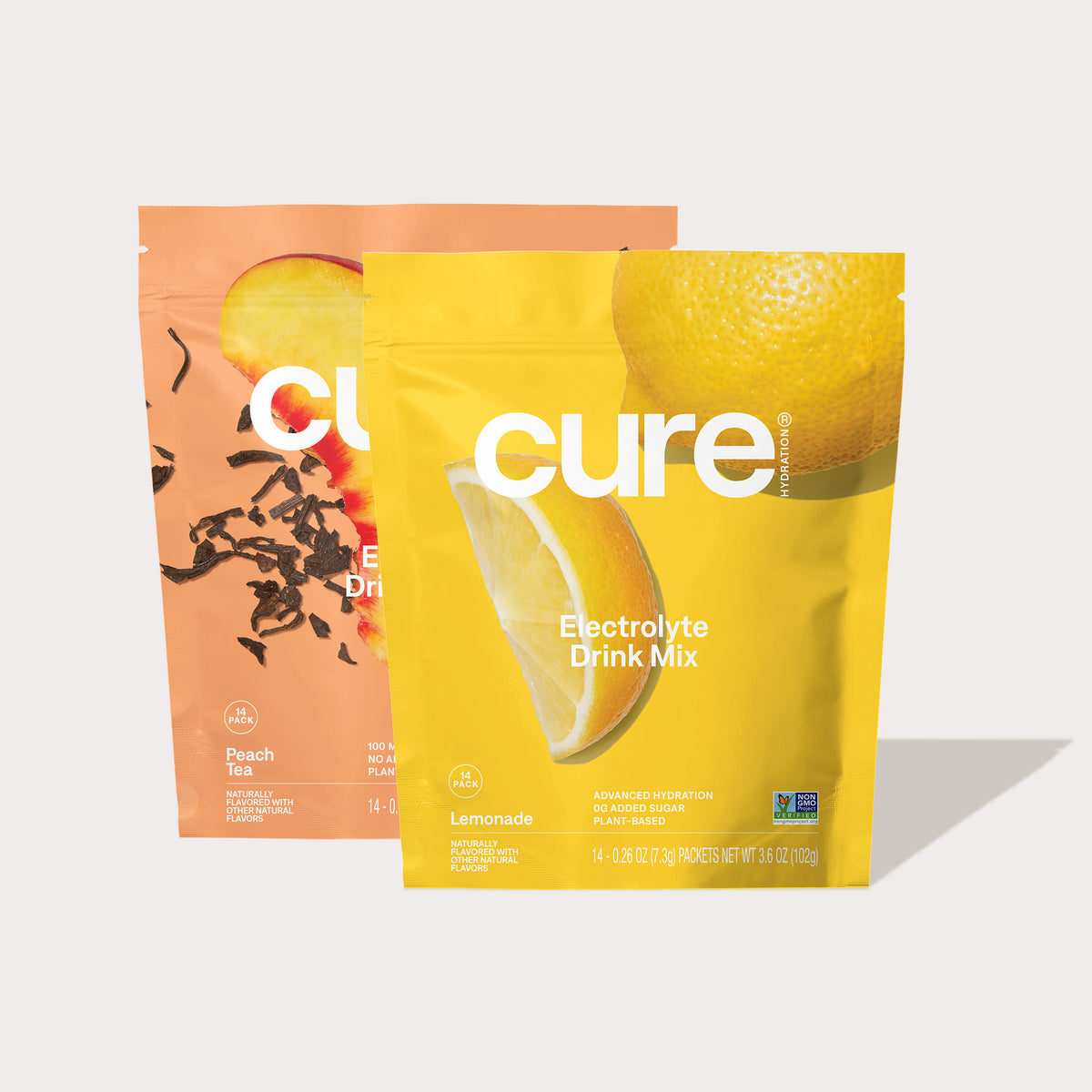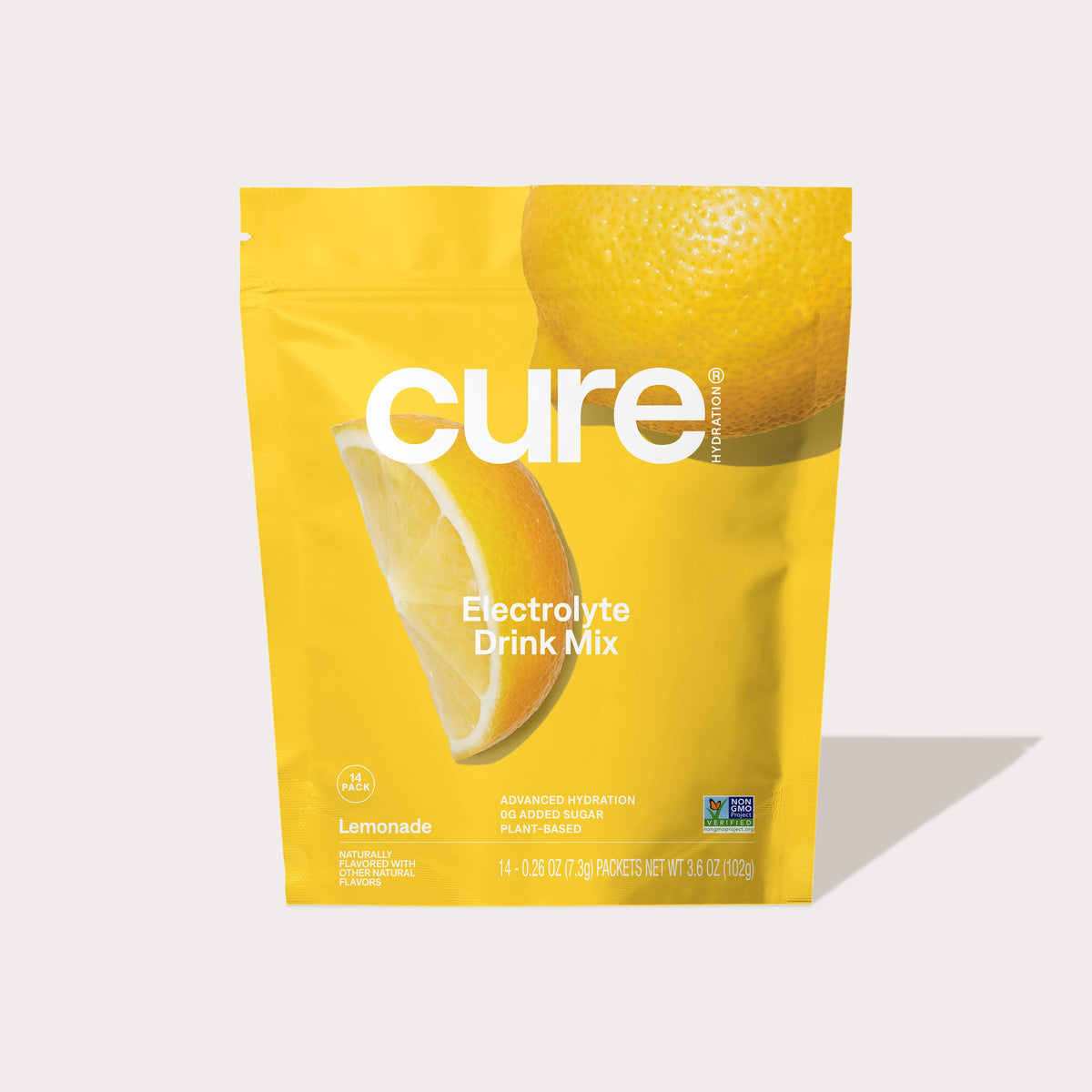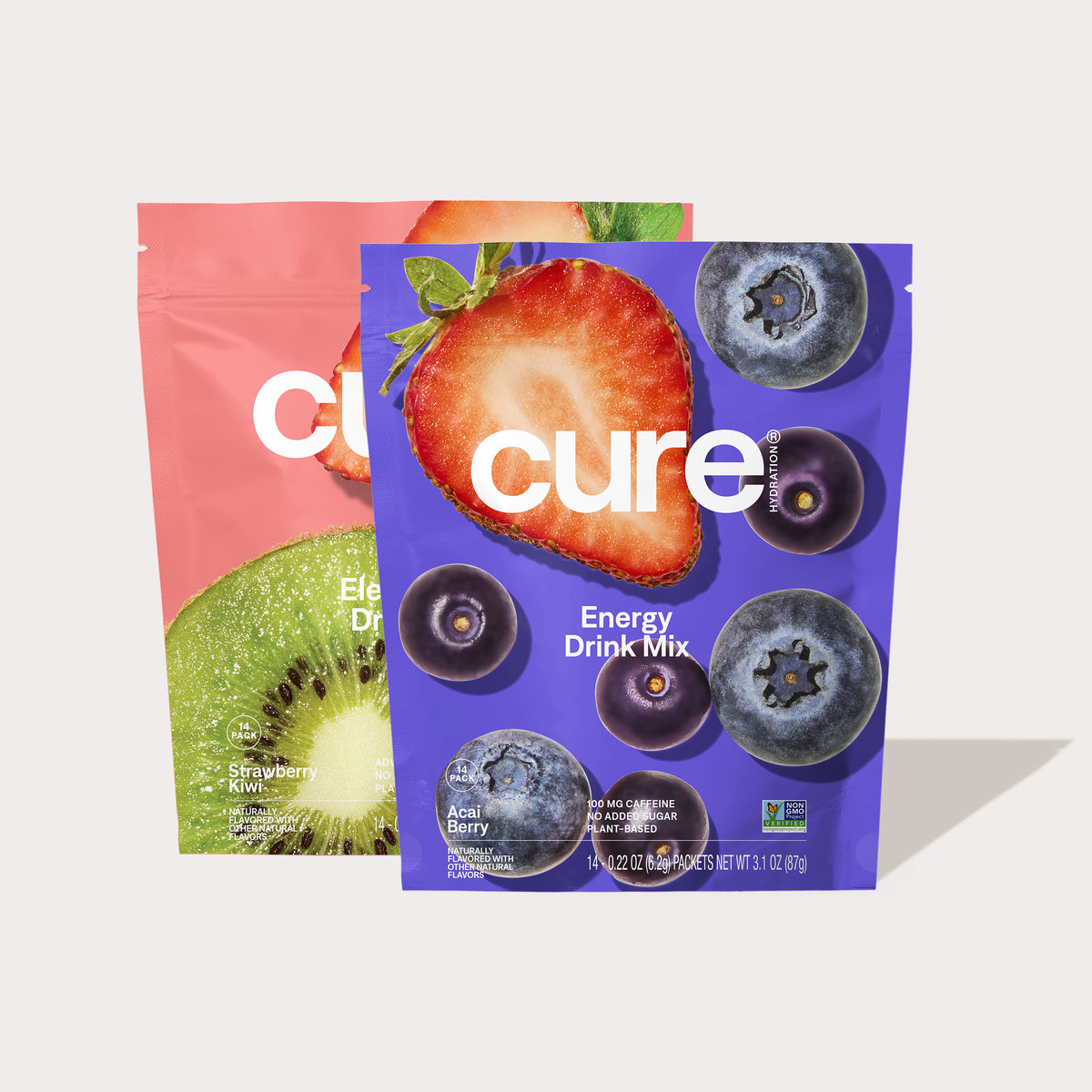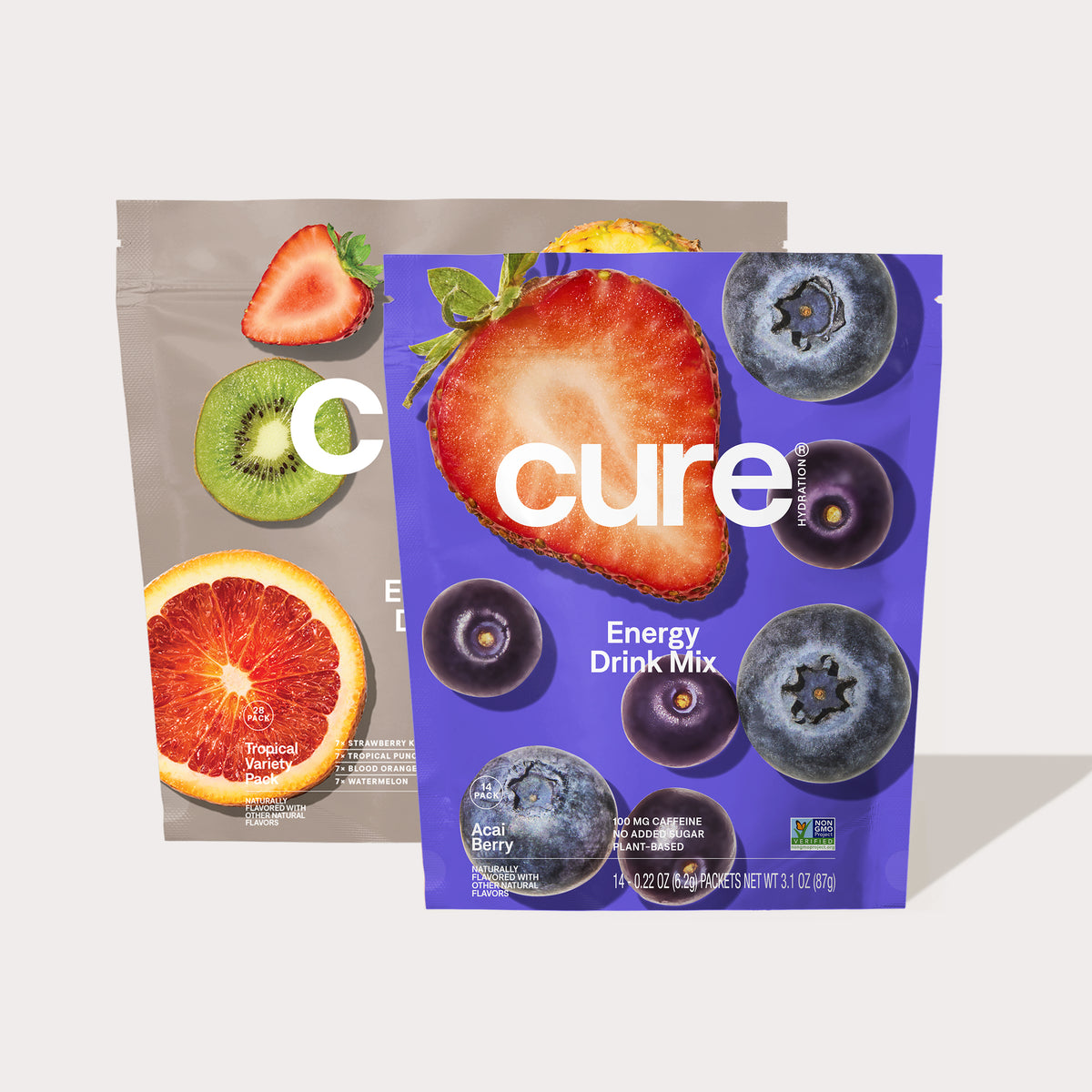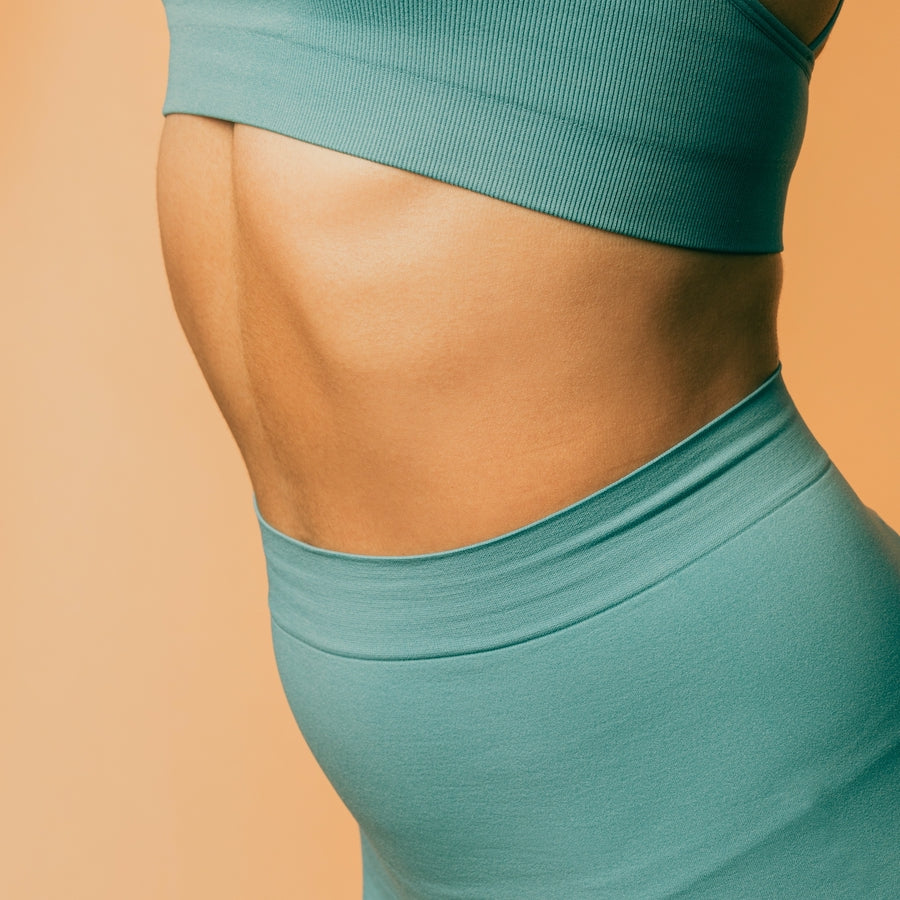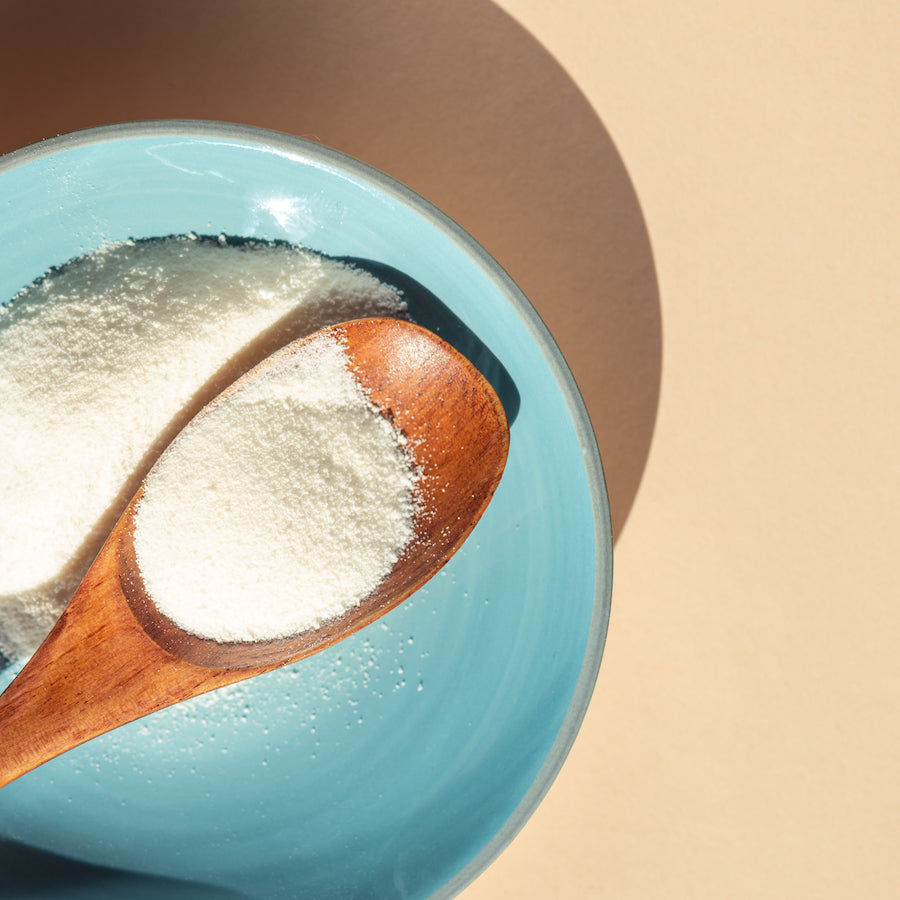In this article:
- The Importance of Hydration Drinks During Breastfeeding
- Are Electrolyte Drinks Safe For Breastfeeding Mothers?
- Back to the Basics of Electrolytes and Hydration
- Why You Need Hydration Drinks
- How Much Fluids Do Nursing Moms Need?

We all know that breastfeeding moms are multitasking superheroes. But did you know that breast milk is roughly 90% water? That means when you're breastfeeding, you are responsible for hydrating your little one and yourself.
Proper hydration is essential to maintaining a healthy body and mind, and it’s important to consume more water than you lose through your body’s natural processes. For nursing mothers, who produce up to a quart (32 fl oz) of breastmilk each day, staying hydrated is even more important.
While breastfeeding, you release oxytocin, which stimulates thirst. That is your body’s way to ensure that you drink enough water to meet your extra fluid needs. The increased thirst during breastfeeding is why hydration drinks enhanced with electrolytes can help in restoring hydration and promoting milk production.
The Importance of Hydration Drinks During Breastfeeding
Hydration while breastfeeding follows the basic “in and out” principle of hydration: If you’re losing fluid and electrolytes, you must take more in. Since nursing mothers produce up to one quart of breast milk daily and 90 percent of that milk is water, it is essential to make sure you’re replenishing lost electrolytes.
Breastfeeding is one of those times when water isn’t enough to keep your electrolytes replenished. Incorporating a hydration drink into your daily routine can be a great proactive measure to take while breastfeeding.
By replacing lost electrolytes, you are giving your baby the higher quality milk while taking care of yourself too.
During breastfeeding, it’s more important than ever to ensure you are consuming NATURAL products and ingredients! What you put into your body affects your baby, so make sure you choose a healthy drink with natural electrolytes.
Drinking a daily hydration drink can be extremely beneficial in keeping you hydrated and help with milk production since a nursing mother requires 16 cups of water per day.
In general, here are some symptoms of dehydration in nursing mothers that are the same as the symptoms for other people. These include:
- Dark-colored urine
- Constipation
- Abnormal fatigue
- Dry mouth
- Muscle cramps
- Frequent headaches
As a breastfeeding mother, you should be even more conscious of replenishing electrolytes if:
- You notice symptoms of dehydration (see above)
- You exercise consistently or live in a hot climate
- You are nursing more than one child
- You are pregnant with another baby while nursing
As you know, dehydration impacts your mood, energy, and your skin. As a busy mom, you are likely struggling to keep it all together and it can be tempting to put your newborn baby’s well-being in front of your own.
It’s important to remember that you won’t be able to care for your baby well if you’re not taking care of yourself, first! It should be encouraging that something as simple as drinking enough water throughout the day or having a hydration drink in the afternoon is actually doing a lot of good.

Are Electrolyte Drinks Safe For Breastfeeding Mothers?
Yes, electrolyte drinks are safe for breastfeeding mothers and can help in restoring hydration and promoting milk production. Yet, it’s critical for mothers to make a good choice when it comes down to which drink to choose.
Electrolyte drinks that are filled with harmful chemicals, extra sugar and caffeine can do more harm than good for the nursing baby.
So, try to choose electrolyte-enhanced drinks made with organic ingredients and stay away from drinks packed with added sugars, artificial ingredients and synthetic minerals.
Try adding a Cure Hydration Daily Electrolyte Mix into your daily wellness routine. Our products contain no added sugars and no artificial ingredients. Instead, our electrolyte mixes consist oflant-based ingredients such as coconut water, pink Himalayan sea salt, and lemon juice.
Back to the Basics of Electrolytes and Hydration
Let’s go back to the science basics of electrolytes and hydration, without making things complicated.
Electrolytes are basically the controllers of how much water your body retains. When your body is producing up to a quart of breastmilk, your body needs to replace those electrolytes in order to help maintain your hydration levels.
Electrolytes are important to:
- Maintain proper hydration
- Regulate your muscle function
- Regulate your nerve function
- Maintain your body’s pH levels
Some examples of electrolytes found in our body include: calcium, magnesium, sodium and potassium.
Why You Need Hydration Drinks
Breastfeeding increases your energy demands and appetite. That means in addition to feeling hungrier than usual while breastfeeding, you may feel thirstier as well. When your baby latches onto your breast, your oxytocin levels increase. This causes your milk to start flowing. This also stimulates thirst and helps ensure that you stay properly hydrated while feeding your baby. It’s important to eat enough calories and replenish your lost electrolytes to ensure that you stay healthy while breastfeeding.
It’s important to note that your hydration needs will vary depending on factors like activity levels and dietary intake.
But if you feel very tired, faint, or as if your milk production is decreasing, you may need to drink electrolyte-enhanced drinks.
Electrolyte drinks are a great way for you to quickly replace electrolytes that you lose during breastfeeding. The plant-based electrolytes in our products help you rebalance and hydrate more effectively than water alone!
How to Stay Hydrated While You’re Breastfeeding
It’s no secret that breastfeeding moms are busy. That’s why hydration drinks such as Cure, made with all-natural ingredients, can be helpful when you don’t have the time or luxury to take endless sips of water throughout the day.
If you tend to have trouble drinking enough water, here are a few tricks you can use to stay hydrated:
Drink When Baby Drinks
Get in the habit of drinking an 8-ounce glass of water every time you breastfeed, plus a couple more each day.
When the baby drinks, the mother drinks. If you get into the habit of drinking an 8-ounce glass of water every time your infant feeds (which is usually 8 to 10 times a day), you will meet your hydration while breastfeeding needs.
Tote Hydration Drink in Diaper Bag
Pack a Cure Hydration reusable water bottle and a few hydration drink mixes into your diaper bag to make hydration more accessible throughout the day. The drink mixes are small, lightweight and easy to have on-the-go so you can always rehydrate wherever you are.
Limit Caffeine
Caffeine can have a dehydrating effect, so it’s best to limit your consumption to about 2-3 cups of coffee a day. If you need more caffeine to get through the day, just be sure to balance it by drinking a little extra water.
Take Advantage of Baby’s Bedtime
When your baby falls asleep, take advantage of this time to get some much-needed rest and recovery. Try sipping hot lemon water or a tasty hydration drink (we recommend Lemon or Watermelon!) as you read a book or hop in the bath.
How Much Fluids Do Nursing Moms Need?
Although research has found that nursing mothers do not need to drink more fluids than what's necessary to satisfy their thirst, experts recommend about 128 ounces per day.
Nursing moms should increase their daily intake from about 64 oz. to about 100 oz. to compensate for fluids lost due to breastfeeding. The Institute of Medicine notes that the median amount of fluids typically consumed by breastfeeding mothers is 3.1 liters (13 cups), compared to 2.2 liters (9 cups) for non-pregnant/lactating women and 2.3 liters (10 cups) for pregnant women.
Although hydration is important, there is no need to become a compulsive water drinker or “force fluids”! Drinking more water than you need will not produce more milk. In fact, by a strange biochemical quirk, forcing fluids has been shown to diminish milk production.
To Sum it Up
At Cure, we work to ensure wellness becomes a space where premium products are accessible for everyone. And we empower others to make better, informed choices about their health to help them rise to the challenges of their everyday pursuits.
Breastfeeding is hard work! Your body requires more calories and nutrients to keep you and your baby nourished and healthy. When you’re nursing, it’s more important than ever to take hydration seriously. If you’re not replenishing the electrolytes you’re losing, the quality of your breastmilk can be negatively affected.
It can also be detrimental for your own health. Avoid excess caffeine and alcohol consumption, and stick to the recommended intakes to keep your baby healthy. It is not necessary to force yourself to drink fluids. Pay attention to your body’s signals – signs of thirst can often be neglected by busy mothers who have too much on their plate.
Lastly, be patient with your body. Take it one day at a time and remind yourself how incredible it is that you are providing your child with nutrients from your very own body.
Sources:
Breastfeeding Diet 101: What to Eat While Breastfeeding | Healthline
Nursing Your Baby? What You Eat and Drink Matters | Academy of Nutrition and Dietetics
Increasing your breast milk supply fact sheet | Children's Health
The physiological basis of breastfeeding - Infant and Young Child Feeding | NCBI

